
All Episodes - CrossTalk
CrossTalk was a weekly half-hour telecommunications podcast produced for the industry journal CommsDay.
View Podcast Details117 Episodes

24 Jul '15 - NBN Migration - still not right?
The government has outlined a framework for migrating customers to the NBN, with a threat of regulatory action on the industry if the process isn't smoothed out.Last year Tony Warren, Telstra's Head of Regulatory Affairs, said that the process needed to be fixed and the Comms Alliance was the logical body to coordinate improvements.Today it seems to have fallen on the NBN to work through the detail and, whilst they say things have got better, there is a lot of room for improvement in how services are installed and activated.So, does the government's paper help the situation. Phil Dobbie argues the four pillars are so high-level and the issue seems to be in the detailed execution.We hear from:Katarzyna Stapleton, Executive General Manager Disconnections & Migration at nbn;Christine Williams, Telstra’s Director of Equivalence; andPaul Brooks, Board Director, Internet AustraliaDo you have something to add? Leave a message on 02 9304 5198.

17 Jul '15 - Will the NBN keep up with demand?
No sooner had NBN released its Network Design Rules document than one blogger was questioning whether the 2Gbps uplink capacity per node was enough to cater for peak demand. After all, Cisco is forecasting 29 percent annual growth in peak demand from Australian internet users, and that prediction was made before the arrival of Netflix.NBN says it’s not a big issue. As explained in this week’s Crosstalk, upgrading requires changing an optical switch, not the costly process of adding more fibre. So, the NBN probably has a few years life in it, helped by new standards that could see peak speeds delivered across vectored VDSL double over the next few years. Again, without the need to lay more fibre.But what when we do eventually demand more capacity and speed? Running fibre to the premises could be three times the expense – something that won’t be undertaken whilst the NBN is rushing to pay-off if it’s investment in the original build. Could NBN’s debt slow down our progress and see us lag behind the rest of the world?This week we talk to:- Stefaan Vanhastel, Director Product Marketing at Alcatel-Lucent- Kevin Bloch, Chief Technology Officer at Cisco- John DeRidder, Telecommunications Economist

10 Jul '15 - New law will see Government get to grips with network design
The Attorney General (AG) has circulated draft legislation that will give the Government greater control over how networks are designed and maintained.The belief is that the commercial pressures of carriers and carriage service providers are at odds with the objectives of national security. The new Bill - Telecommunications and Other Legislation Amendment Bill 2015 – would give new powers to the Government to remedy the issue.The AG’s department would provide administrative guidelines so carriers can understand what parts of their networks are vulnerable to unauthorised access and interference, so appropriate action can be taken. Carriers would also need to seek approval before making substantive changes to their network design.As you’ll hear in this week’s CrossTalk podcast, some in the industry believe it’s a step in the right direction. After all, why would anybody be against national security?The concern is, will the Government be so prescriptive the impact will be counterproductive, and costly for the industry.We hear from:- Patrick Fair, partner at law firm Baker & McKenzie- Matthew Lobb, General Manager Industry Strategy and Public Policy at Vodafone- George Fong, President of Internet Australia and- Mark Gregory, Senior Lecturer at RMIT University Add your comments by calling the CrossTalk feedback line - 02 9304 5198

2 Jul '15 - ACCC not sold on Telstra’s Double Dipping
The ACCC has revised its decision on access pricing, saying wholesalers should be paying more than 9.6 percent less to Telstra.Whilst ACCC chair Rod Sims expects the savings to be passed on to consumers, CommsDay’s Kevin Morgan says it will simply see the margins passed to Telstra’s competitors who, he says, are already madding a tidy profit from ULL services.Whatever your take, the issue is relatively short lived as consumers move over to the NBN. Then, the more important consideration will be the cost of backhaul. The ACCC are giving careful consideration on the cost of these services, with John Lindsay saying the outcome will impact all service providers and the future viability of the NBN. That’s all!

25 Jun '15 - The Internet of What Things?
Last week the Communications Alliance workshopped issues that will arise from the Internet of Things – technically and regulatory. But do we have a clear vision of what the IoT is?A survey this month from Progress software showed that more than half of developers didn’t use the term Internet of Things, largely because they found it meaningless. Our guests on CrossTalk this week agree that data is at the heart of it, and it’s that data that raises the most ethical questions, particularly if, in a Google-like fashion, the revenues from the IoT largely come from selling that data or targeting marketing activity based on it. Could the utilities often talked about – like health, smart-homes and smart-cars, just be a small slice of the internet of things, where marketers go crazy with your data?This week we hear from: John Stanton from the Communications AllianceRob Zagarella, National Narrowband Network CommunicationsIan Davidson, GoFarWill Scully Power, DataratiPaul Brooks, Internet Australiaand Andres Torres, Ericsson

19 Jun '15 - Broadband and mobile are growing, but is it fast enough?
Ericsson and Cisco have both released reports highlighting the growth in data usage, internet speeds and device adoption. Not surprisingly, the figures are all on the rise.Yet, with the exception of mobile data speeds, we rate poorly compared to similar economies. A new report from the Centre for Independent Economics might explain part of the reason. It says Telstra customers are paying a $3.1 billion monthly premium for their services. Vodafone’s Dan Lloyd says this is unique in the world and shows there are structural issues that need to be addressed in the telecommunications landscape. If these issues were fixed, would Australia fare better on the global stage, and would our economy benefit as a result?This week on CrossTalk we hear from:- Andres Torres, strategic marketing manager at Ericsson - Kevin Bloch, CTO at Cisco Australia- Dan Lloyd, Chief Strategy Officer at Vodafone Australia
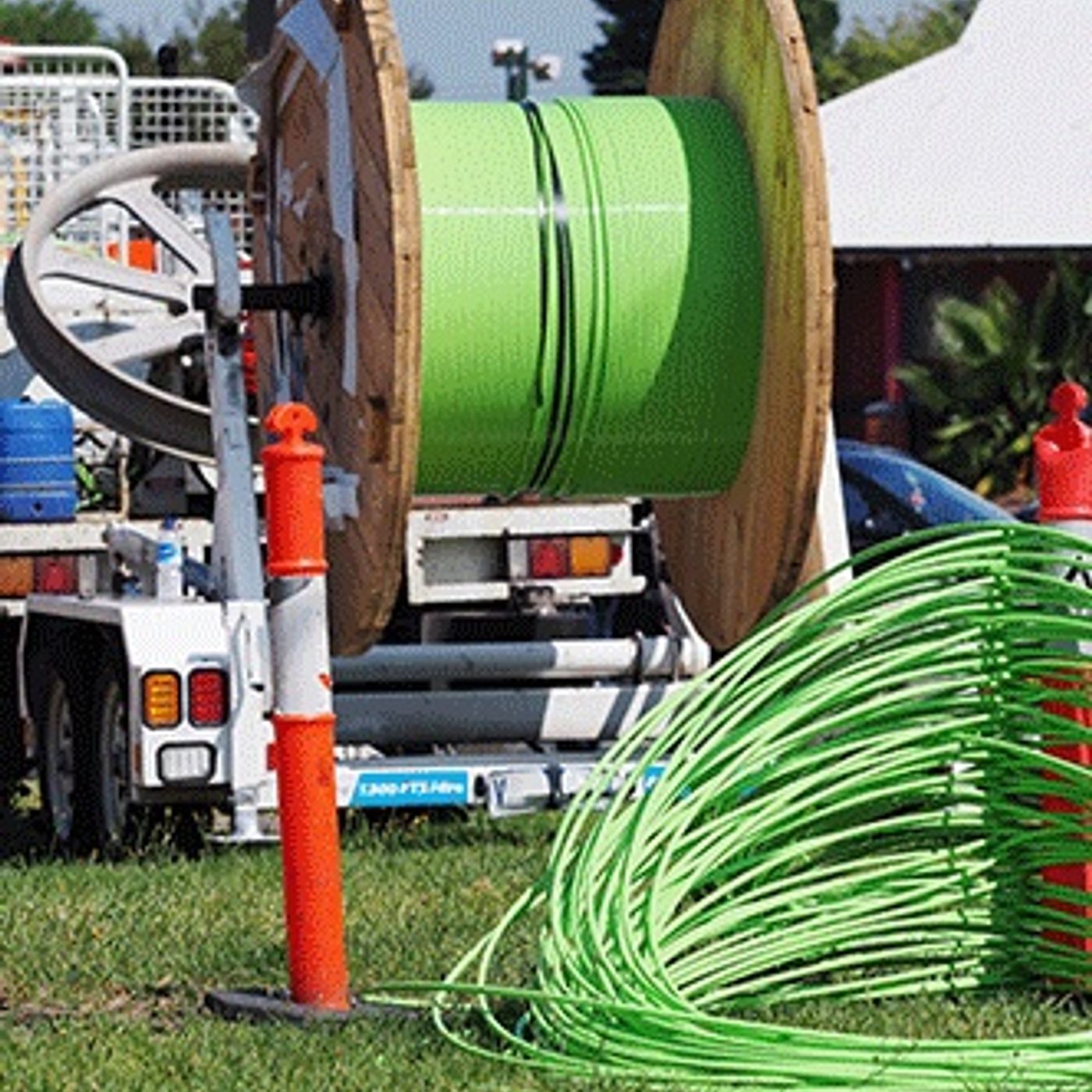
12 Jun '15 - Will new contracts fix NBN's rollout problems?
NBN’s history has been blighted by poor relationships with construction contractors. Has the new team fixed the problem?In the past, NBN’s immediate partners complained of inconsistent placement of work, whilst subcontractors argued that they were being squeezed on margins and, in some cases, left out to dry. Some have gone insolvent.NBN has now announced a new approach to industry management. Five partners have signed a Multi-technology Integrated Master Agreement (MIMA).This week on CrossTalk we talk about the new agreement with Sandra Dodds, chief executive of infrastructure at Transfield and Michael Doherty, industry management at NBN. Will this approach cure the dysfunction of the past and ensure NBN meets its aggressive targets?

5 Jun '15 - Copyright law will help the Government’s website blocking
A government review has concluded that there are only minor changes needed to how agencies enforce website blocking, but it seems to ignore the impending changes to copyright law.Under section 313 of the Telecommunications Act companies have to do their best to help government agencies enforce the law, including blocking websites. Many simply can’t fulfil the request because, as Paul Brooks highlights, many don’t have the equipment required to do it.A review by the Standing Committee on Infrastructure and Communications saw no problem with a broad range of government agencies having the ability to block sites in the course of their duties, but saw the need for more expertise within the departments after the incident where ASIC accidentally blocked a quarter of a million websites, instead of just a handful. Laurie Patton, CEO of Internet Australia, welcomes the recommendations and says, whether you agree with blocking or not, there needs to be a focus on ensuring it is done correctly.But there are ramifications from the Copyright Amendment Bill, discussed with Patrick Fair from law firm Baker and McKenzie. If the Bill is passed as drafted, all telcos will need to have blocking equipment in place, which increases the powers of government agencies to use it for their own purposes. Doesn’t this mean there’s a need for a more stringent method of oversight? Like a Judge, for example.

28 May '15 - Hong Kong Takes Fibre to the Curtain
Hong Kong Telecom has moved on from providing fibre to the basement, with more than 80 percent of households able to receive fibre right to their home. Now they are reaching further into the home, offering services that utilise their network. As HKT CTO Paul Berriman remarks, they’re even selling curtains, part of a mix of home network solutions.The success of HKT really started with the establishment of their TV Now Pay-TV service, bundled with broadband to reduce churn, which helped justify the rollout of faster fibre-based networks. Whilst he admits that for many 30 Mbps is enough, there is an insatiable appetite for speed in Hong Kong, driven by infrastructure competition, and the arrival of 4K TV (and higher definition services) will help fill the pipes.In the meantime, their experiences provide a useful insight for Australian operators, and raises the question, how long before we need to see fibre delivered all the way to the home?
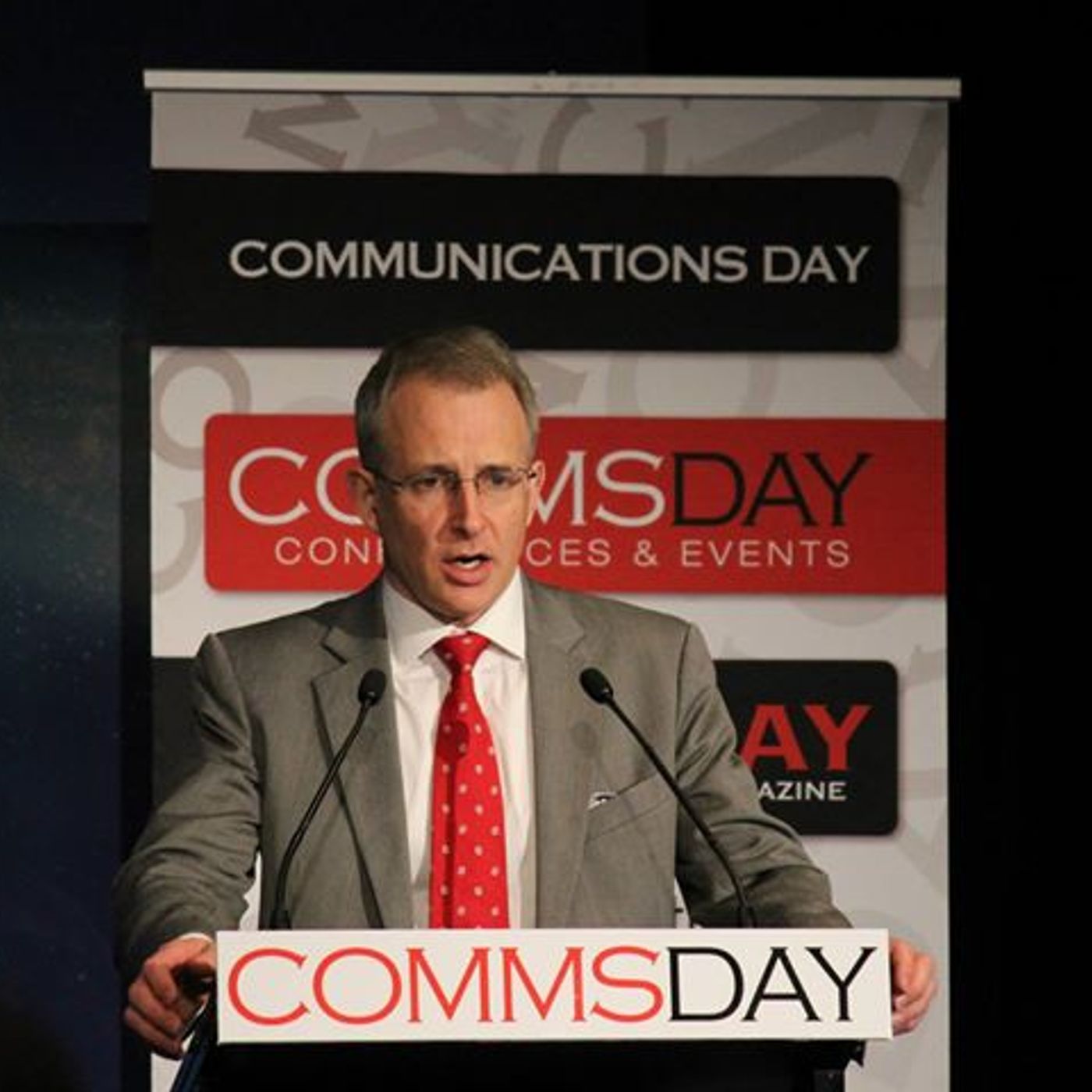
21 May '15 - Time for a rethink on the USO?
At the CommsDay Australasia Satellite Forum this week Paul Fletcher, Parliamentary Secretary to the Communications Minister, raised questions about the future of the Universal Services Obligation. Should it be the responsibility of the NBN?Optus’s Head of Interconnect and Economic Regulations Andrew Sheridan agrees. He says that, even if copper is still needed to provide voice services in the interim, NBN should manage the transition because they won’t have any reason to prolong its life more than is necessary.CommsDay’s Kevin Morgan goes one step further and suggests we could do away with the USO altogether. After all, all over the world, people are moving to mobile as their preferred choice for voice calls. And for many low income households, mobile is the cheaper option.Paul Fletcher says the time is right for the industry to provide evidence of the need for change, adding he can’t see the current agreement with Telstra being renegotiated in a hurry. After all, it’s scheduled to finish in 2032!
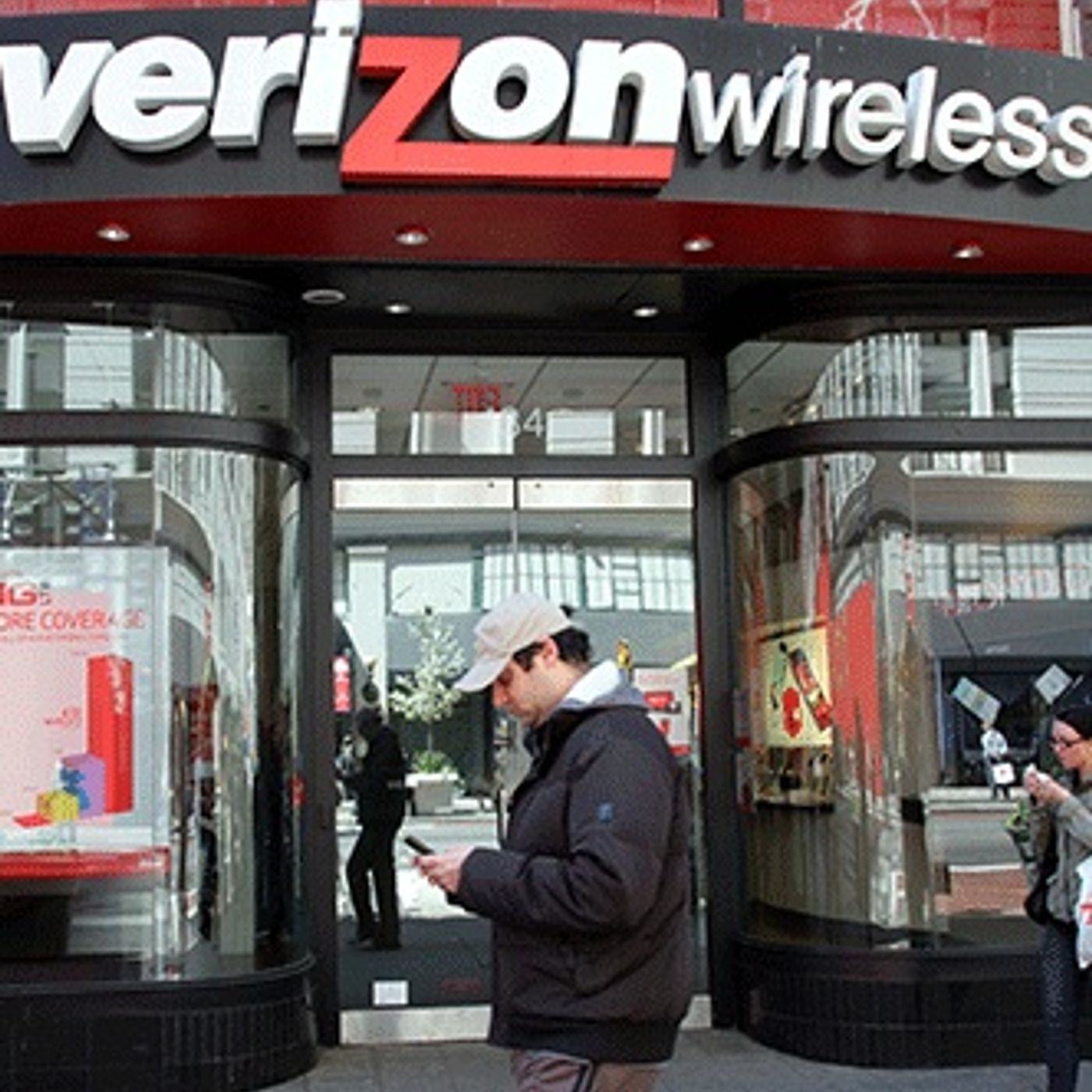
14 May '15 - Why Verizon wants to buy AOL
Earlier this week Verizon announced that it plans to buy AOL in a deal worth $4.4 billion. So what are they after?In the past telcos acquired media players for their content – remember the AOL Time Warner merger? Not a big success story. Foad Fadaghi, Managing Director at Telsyte, says this week’s acquisition is very different. Whilst content is part of the deal, it is more to do with advertising technology. In media-land they call it programmatic – the technique to serve targeted content across multiple devices. On this week’s Crosstalk, Mitch Waters, ANZ Managing Director for AOL platforms describes how Tim Armstrong, their CEO, has been busy acquiring leading ad-tech companies, leading to the recent launch of their One advertising platform.Graham Christie, a board member at the Mobile Marketing Association, says the opportunity is huge for telcos, who should be "sitting on the crown jewels" when it comes to understanding and profiling mobile users.Buying AOL is Verizon’s way of capitalising on this opportunity. What will local telcos do?

7 May '15 - Why the sudden need for scale?
TPG wants to buy iiNet, so does the M2 Group. Meanwhile Vocus and Amcom want to merge, but TPG wants to stop them. Perhaps they’re next on the TPG menu.So, what will happen next? Who will be iiNet’s successful bidder, and what happens to the party that loses out? Nathan Burley, Director Telecommunications in the Equities Research Division at the Commonwealth Bank, talks us through the scenarios.We also look at what’s driving this round of acquisitions? Telco consultant and former iiNet CTO John Lindsay suggests the ACCC is to blame. In their quest to engender competition have they actually driven consolidation in the industry?He also reckons if M2 loses out in the bid for iiNet they’ll be next to be eaten by the successful bidder.Interesting times in telco land.
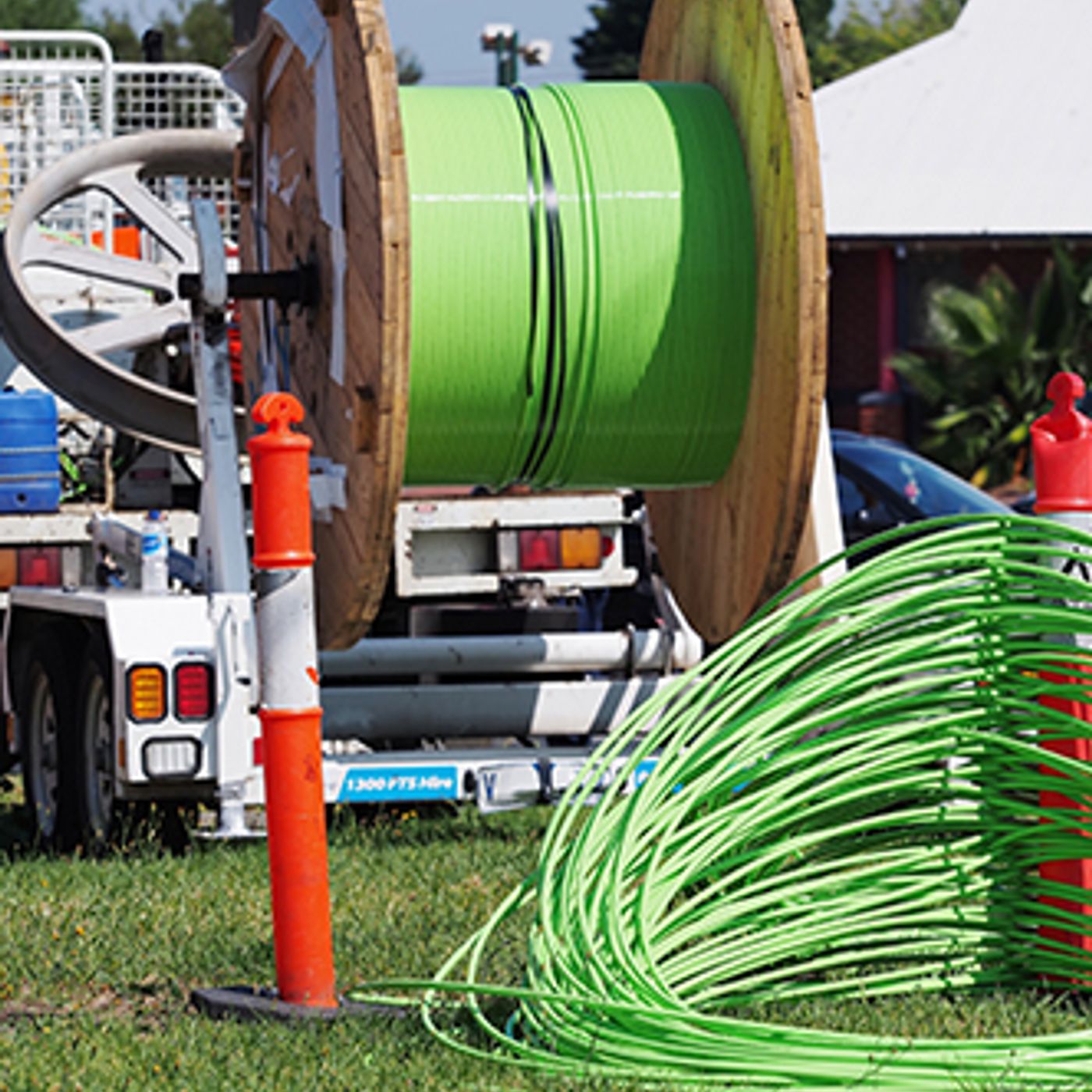
30 Apr '15 - Did New Zealand get it right on broadband?
Australia and New Zealand embarked on high speed broadband roll-outs around the same time. Their approach, it seems, is cheaper, faster – with more reliance on fibre - and has been quicker to deploy. So what’s the difference? Well, they didn’t trust it in the hands of a government agency. Instead Crown Fibre Holdings offered tenders to private sector businesses, including the newly separated incumbent Chorus, and power companies used to infrastructure roll outs.As Dr Ross Patterson, partner at Minter Ellison Rudd Waters lawyers in Auckland, explains, prices have also been kept down by the competitive tension created by retaining the existing copper network.As Australia's NBN moves slowly ahead, is it really too late to adopt some of the New Zealand approach here? Would Telstra agree to separate sooner for the chance to build and own a chunk of the NBN?

23 Apr '15 - Price could kill the NBN, not the speed
NBN detractors only question whether it’ll deliver the speed we demand. It’s less of an issue than the question of price.For some time in the industry the question of CVC charges has been the biggest bone of contention. This is the price a service provider pays to connect their own network to the NBN access network. It’s a flat rate, per Mbps charge. The more your users consume at peak time, the higher the charge.As we’ve heard, in recent weeks, peak time capacity has escalated since the arrival of Netflix. As iiNet CTO Mark Dioguardi revealed at this week’s CommsDay Summit in Sydney, the content provider now accounts for 25 percent of their traffic.This demand is only set to increase as more people watch TV online. Yet, whilst capacity demand increases exponentially, NBNCo’s CVC charges apply a flate rate per Mbps. As Bevan Slattery points out, the government needs to swallow some cost and reduce the CVC charge to about $1 per mbps. Either that, or the government faces an angry public, confronted with the most expensive broadband in the world.

16 Apr '15 - Is the NBN Fast Enough For Home Workers
Is the NBN being designed in a way that will boost productivity by encouraging more of us to work from home?People have been talking about telecommuting for decades, yet research from the University of South Australia indicates only 16 percent of us do it on a regular basis. The Department of Communications has a Telework calculator (https://www.telework.gov.au)to show some of the benefits, but is there enough focus at NBNCo in helping to realise the potential?This week we hear how Vaughan Klein Cisco’s, General Manager of Collaboration for the ANZ region, manages to work from home two days a week – and his home is a cattle property 360km from Sydney. For him, the biggest benefit the NBN will provide is bigger download allowances for his wireless connection.Gary McLaren, formerChief Technology officer at NBNCo, says that there needs to be an understanding of the importance of upload speeds and is concerned that, after the NBN is delivered, who will have the upgrade path for high end users.Whilst Natalie Skinner, a senior research fellow at the University of South Australia, talks through some of the findings from the Australian Work and Life Index. Working from home can be a good thing, unless it simply means more unpaid work and less time with the family.This week we look at home working from all angles and ask whether NBNCo needs to consider specific products for small business and home workers, just as it has for larger businesses with fibre connections.

9 Apr '15 - How Dallas Buyers Lost the Battle They Won
The copyright owners for the movie Dallas Buyers Club won a court battle against iiNet this week, but the ruling could scupper any plans for speculative invoicing, making action against suspected copyright infringers prohibitively expensive. Could this be an example of what awaits us – expensive litigation and extensive legislation that achieves little in the end?Earlier this year in Canada there was talk about VPN providers having to alert customers suspected of piracy. It’s unlikely it’ll happen here – mainly because most VPNs are based overseas – but, some could come under the jurisdiction of the new metadata retention law, at ministerial discretion.Meanwhile, could sending out piracy notices drive more people onto VPNs to avoid scrutiny?We hear from:John Stanton, CEO of the Communications AlliancePatrick Fair, Partner at law firm Baker McKenzieDr Michael Geist, law professor at the University of OttawaPaul Brooks, owner of Layer10 Consulting

1 Apr '15 - Will you be paying for Netflix, whether you want to or not?
Netflix has arrived in Australia. Are their competitors worried? Not really. Stephen Langsford, the CEO of Quickflix, says their presence will help to grow the market. Perhaps it’s the ISPs who should be most concerned. As John Lindsay points out, too many customers streaming 4Mbps content will cost a lot, particularly if NBNCo was to continue charging $17.50 per Mbps (the CVC charge) for connectivity to its access network.As demand increases CVC costs will come down, but will they fall enough to cater for more and more households streaming content at the same time? Doesn’t it mean ISPs will need to increase their costs. If that’s the case, doesn’t it also mean you’ll be paying for Netflix, even if you don’t subscribe to it?Presented by Phil Dobbie for CommsDay.SUBSCRIBE TO CROSSTALK ON ITUNES: https://itunes.apple.com/au/podcast/cross-talk/id597713172?mt=2

26 Mar '15 - Website blocking: the easy way to protect copyright, but does it work?
The government has introduced the Copyright Amendment (Online Infringement) Bill 2015. It will enable copyright owners to approach the Federal Court to request an injunction against an overseas website if its primary purpose is the infringement of copyright. ISPs will then be required to block those sites.Just how that is done is not covered in the legislation. Paul Brooks, Director of the Internet Society of Australia, says using DNS look-up is ineffective and adding redirects will impact on the trust and integrity of the Internet.Patrick Fair, partner at law firm Baker and McKenzie, looks at how the revised copyright law could work in practice, whilst John Stanton , CEO of the Communications Alliance, cites it as another piece of legislation that should have had some direct industry consultation.Meanwhile, the UK has been blocking pirate sites for more than two years. James Blessing, chair of ISPA, Britain’s Internet Service Providers Association, suggests what we could learn from their experience.

19 Mar '15 - iiNet takeover the least of our competitive worries
Despite protestations from The Greens it seems highly unlikely that the ACCC will reject TPG’s $1.4 billion takeover of iiNet. It simply creates another sizeable player to challenge the dominance of Telstra.It’s a move welcomed by Warwick Davis, economist at Frontier Economics and Matthew Lobb, GM Industry Strategy and Public Policy at Vodafone Australia. But they have other concerns about the level of competition in Australia’s telecommunications market.Even though the ACCC’s recent annual report on telecommunications says competition continues to deliver benefits to consumers, we remain seventh from the bottom in the OECD table of broadband speeds, according to figures from Akamai.So, why is competition failing to deliver? And can we learn anything from Israel, the country whose broadband speeds have increased faster than anybody else in the OECD, thanks to investment by Baraq, which Mai Barakat, a senior analyst at Ovum in the UK, describes as a near monopoly in fixed-line services.This week Crosstalk examines the factors influencing competition and asks whether the ACCC needs to do a little more digging before declaring that its delivering “lower retail prices, more consumer choice at the retail and infrastructure level, more innovation and greater investment in networks and technology”.

12 Mar '15 - What price, the last mile?
This week the ACCC reached a draft decision on how much access seekers should pay Telstra for fixed line services on Telstra’s network. As usual, everyone is disappointed. Telstra had argued that prices should rise (by more than 7 percent), their competitors hoped to see them fall. In fact, they did fall, but only by an average of 0.7 percent.In the past the argument has tended to be around the total cost of providing the network. This time round, it’s as much to do with how the costs are apportioned. Over the period in which this new regulatory price is in force Telstra expects a 60 percent decline in the number of services, as customers move to the NBN or move off fixed line services altogether. That raises two questions, both addressed in this week’s Crosstalk:-Shouldn’t the impact of the lost revenue by shared across all access seekers; and-Wouldn’t the losses associated with the decline already be covered in the compensation provided in Telstra’s definitive agreement with NBN In this week’s podcast we hear from:-Rod Sims, chairman of the ACCC-Jane Van Beelen, executive director, regulatory affairs at Telstra-John DeRidder, telecommunications economist

4 Mar '15 - Racing to the data retention finish line
It’s looking highly likely that a revised version of the Telecommunications (Interception and Access) Amendment (Data Retention) Bill will soon be passed into law. That means telecommunications companies and internet players of all shapes and sizes will be required to maintain two years’ worth of their customers’ data, including the time and place of phone calls and internet sessions.The Internet Society of Australia is concerned. Their CEO Laurie Patton says they have volunteered to help the government work through the detail and rushing through the legislation could have unintended consequences. He says it has been drafted by lawyers who do not understand how the Internet works.Labor is likely to support the Government in the passage of this Bill because it has been through a review process with the Parliamentary Joint Committee on Intelligence and Security (PJCIS). They issued 39 recommendations which have all, to some extent, now been agreed by the Attorney General and will, supposedly, be written in to the legislation.Patrick Fair, partner at law firm Baker McKenzie has read the 39 Steps (irony alert) and reckons that, although it improves on the bill, there is still a great deal that is uncertain. One recommendation he adds is for all data access to require a warrant. He says, with or without access to content, you can build a detailed profile of someone from two years of metadata.Sadly, it seems any attempt to change the legislation, beyond the 39 recommendations from the PJCIS, will fall on deaf ears.

26 Feb '15 - The anti-piracy three strikes code
Late last year the Attorney General George Brandis and Communications Minister Malcolm Turnbull wrote a letter to the telco industry asking for an industry code to tackle the problem of online copyright infringement. Last week the Communications Alliance released a draft, asking for public comment by March 23rd.It seems to offer a happy compromise. As John Stanton, CEO of the Communications Alliance, explains, rightsholders can submit IP addresses of those who they believe have breached copyright, with the ISP then sending an educational notice sent to the account holder.Erin Turner, campaigns manager at Cboice, believes the scheme goes beyond an educational program, and will encourage rightsholders to pursue disportionate court action against perpetrators.She gives the example of the speculative invoicing used by Dallas Buyers Club in the US. Jeffrey Antonelli is a lawyer in Chicago who defends clients who have received these letters, which are often demanding more than a thousand dollars to protect the recipient from further court action.Bruce Meagher, Director of Corporate Affairs at Foxtel, doesn't like that approach, but says the new code has enough checks and balances to ensure it won’t happen here. He does believe, however, that the code isn’t the only solution to fighting piracy: blocking sites and slowing access speeds might also have to be part of the equation.Meanwhile, one big question remains before the Code can be signed off. Who is going to pay for it all?If you have any comments on the Code and would like to air your views on next week’s CrossTalk, call 02 9304 5198 and leave a voice recording.

20 Feb '15 - Thodey's Last Stand
David Thodey has announced he is stepping down from his role as CEO of Telstra, to be replaced by CFO Andrew Penn.Laurie Patton, CEO of the Internet Society of Australia, says Thodey is smart enough to leave when he’s on a high. Does that mean Telstra faces more of an uncertain future? After all, it can’t be as strong as the last six years, which has seen the company double in value.There’s still plenty of growth to come, according to Nathan Burley, Director Telecommunications for Equities Research at the Commonwealth Bank. He says Thodey had a lot of respect from the market and is surprised to see him leave before seeing through more of his initiatives.The big question is, where does the telco go next? Growth in mobiles is likely to slow and the telco will need to show it can deliver much more in the corporate space and from its overseas investments. Meanwhile, on the home front, could TPG be the player most likely to be nipping at its heels?

12 Feb '15 - Open-ended data retention legislation weeks away
The Prime Minister expects the revised data retention legislation to pass both houses of parliament in the middle of next month, just a couple of weeks after the parliamentary joint committee has presented its findings.Even with the committee reports it seems the legislation will still be riddled with gaps and loopholes. Like, for example, how much is it all going to cost, what government subsidy will be available to cover implementation costs, and how will this compensation be spread across hundreds of service providers?On this week's CrossTalk we hear from:John Stanton, CEO of the Communications AllianceScott Ludlam, Australian Greens Senator for WADamien Kay, CEO at Inabox Group LimitedPaul Brooks, Board Director of the Internet Society of Australia

6 Feb '15 - How will the Data Retention Bill work?
It was tabled in government late last year, now a parliamentary committee is set to report on their findings. So, are they any the wiser?Last week the Parliamentary Joint Committee on Intelligence and Security tabled two public hearings in Canberra, talking to some of the organisations from the 200 submissions they received on the matter. Whilst many focused on the ethics of the proposal – which we ignore in this week’s podcast – there are still substantial questions about how it will work.This week on CrossTalk we ask, if you were in parliament, would you vote for a bill that didn’t address within it, precisely what was to be collected, who would access it, how much it would cost and who would get paid compensation. In other words, are too many of the details left to regulation, creating a law that could prove costly for all concerned?

29 Jan '15 - The Price of Competition
Last April NBNCo chief Bill Morrow floated the idea that a levy should be charged to infrastructure competitors to subsidise the cost of broadband delivery to regional Australia. Last month Malcolm Turnbull said he thought it was a good idea.This week on CrossTalk we look at the idea and other ways to meet the cost of regional coverage, including a broader industry levy, auctioning of access rights or moving the expense onto the federal budget.The pros and cons are discussed with:Prof. Stephen King, Professor of Economics at Monash UniversityDavid Havyatt, former Special Adviser to Senator Stephen ConroyDean Lockwood, Director at Telco7Andrew Franz, engineer, project manager and software developerYour thoughts? Add comments below, or on the CrossTalk feedback line: 02 9304 5198
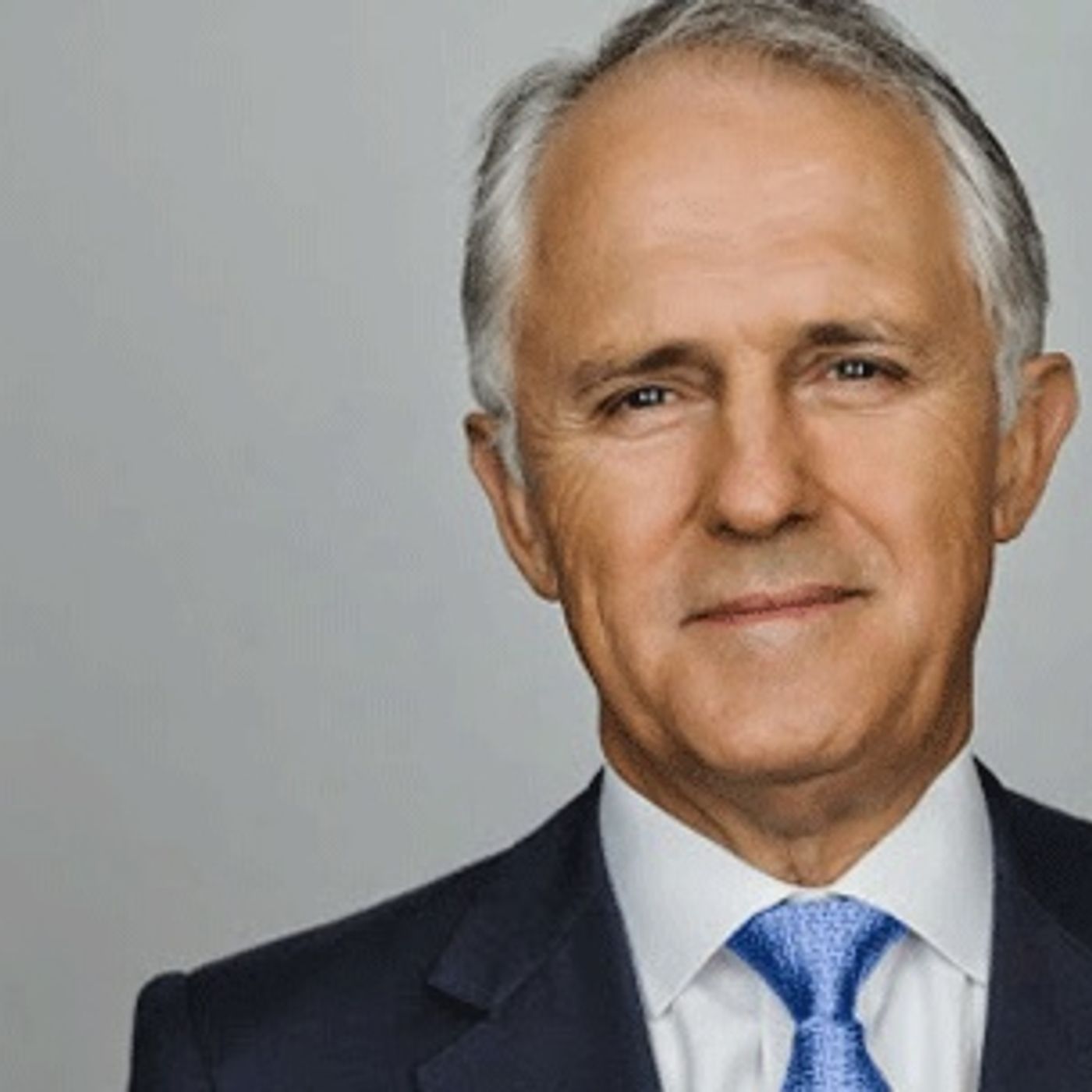
18 Dec '14 - Malcolm Turnbull on the NBN Telstra/Optus Deals and Beyond
On Sunday afternoon NBNCo CEO Bill Morrow signed revised agreements with Telstra and Optus to make use of their copper and HFC networks. In this week’s CrossTalk Communications Minister Malcolm Turnbull describes it as a successful outcome, because NBNCo is paying no-more than was promised in the original deals, but they have the infrastructure to use in the multi-technology approach now adopted for the build of the new (and second-hand) network.We also look at competition. Malcolm Turnbull talks about how other companies could provide an alternative fixed line solution provided they offered it on a wholesale equivalence basis, paying a cross-subsidy to help offset NBNCo’s expenditure for those outside the fixed line footprint – a cost estimated at $6.70 per month per user.But he also warns that for many people a wireless alternative will be fast enough. Isn’t that something NBNCo should be worried about? Small cell technology can provide greater throughput and mobile technologies are increasing in speed all the time. Could a cashed-up Telstra start offering a competitive solution, without having to pay the cross-subsidy or provide open access to competitors. Is this now the biggest threat the NBN faces?

11 Dec '14 - The risk of reaching the last three percent
There are few things that Labor and the Coalition agree on – one is that satellite is the only way to provide broadband access to the most far-flung Aussie residents. But launching satellites is a tricky business, will NBN Co pull it off?At the NBN Rebooted conference last month Gregory Clark , chair of KA Comm expressed his concerns that NBNCo’s lack of experience in the delivery of satellites was a potential “national disaster”.Has he got a point? Paul Fletcher, Parliamentary Secretary for Communications, says it would have made more sense to use commercial players, but the contracts were already in place.Naturally, Matt Dawson, NBNCo’s program director for Satellite, disputes the claim and says they are on track and says people in regional Australia will find the new service “an absolute game changer”.Dr Bob Horton, a consultant to the satellite industry, explains how the NBNCo’s KA-band satellite works, including how spot beams maximise the use of spectrum. Making the best use of the available capacity is essential – evidenced by the need to introduce a fair use policy for the interim satellite solution. Does this mean we need to abandon the NBN’s uniform pricing policy and treat this technology differently?In this week’s Crosstalk podcast we attempt to get across all the issues impacting the NBN satellite solution.

4 Dec '14 - Is the USO an expensive irrelevance?
The Telecommunications Legislation Amendment (Deregulation) Bill 2014 isb efore the senate. If passed it will end the short life of the Telecommunications Universal Service Management Agency, the body established to administer the Universal Services Obligation. It did a particularly good job of ensuring that Telstra is paid by the rest of the industry to provider a standard phone line to whoever wants it.In the past, having Telstra as a carrier of last resort made sense. As Iain Little, Telstra’s Regulatory Director, Operations and Economic Analysis, says on this week’s CrossTalk, in regional Australia you only see Telstra vans out in the field working on infrastructure. But that’s changing – NBNCo will be the provider of the infrastructure.Professor Reg Coutts, speaking at the CommsDay Summit in Melbourne back in October, asks whether NBNCo is really the provider of the USO. If that’s the case, why is TUSMA showing an estimated contract value of $253 million paid to Telstra each year to provide the USO through to 2032. By then, won’t the concept of a standard phone line be a little irrelevant? And, given that NBNCo had a remit to provide high speed broadband to every household, isn’t the concept of the USO now irrelevant?

27 Nov '14 - Doesn't a 2030 Vision Need Fibre?
Back in 1974 Arthur C Clarke predicted a future where connected computers in the home would allow us to do banking and conduct our work anywhere in the world. 15 years later Tim Berners-Lee created the worldwide web.Now a group of Australian interests wants to create its own vision, of communications for 2030 – again, fifteen years from now.You’d have to assume that such a future will see a greater reliance on fibre, so surely this consortium is looking at what surpasses the current multi-technology mix approach. Well, David Tudehope, CEO of Macquarie Telecom, says the people he talks to are happy with the NBN approach and its more a question of what goes on top of it. Another member of the consortium, Peter Strong, Executive Director at the council of small business of Australia, seems more concerned about the need for speed, at home as well as at work. Does the current plan address that need?Benoit Felton, CEO of Diffraction Analysis, says Australia needs to return to accepting that fibre is the future. If the multi-technology mix is a step towards it, we still need a plan about how to get beyond it. And he says the only sensible approach is to have a spin-off venture from Telstra take control of the build and operation.Perhaps then Australia’s 15 year vision will be as optimistic as Arthur C Clarke’s.
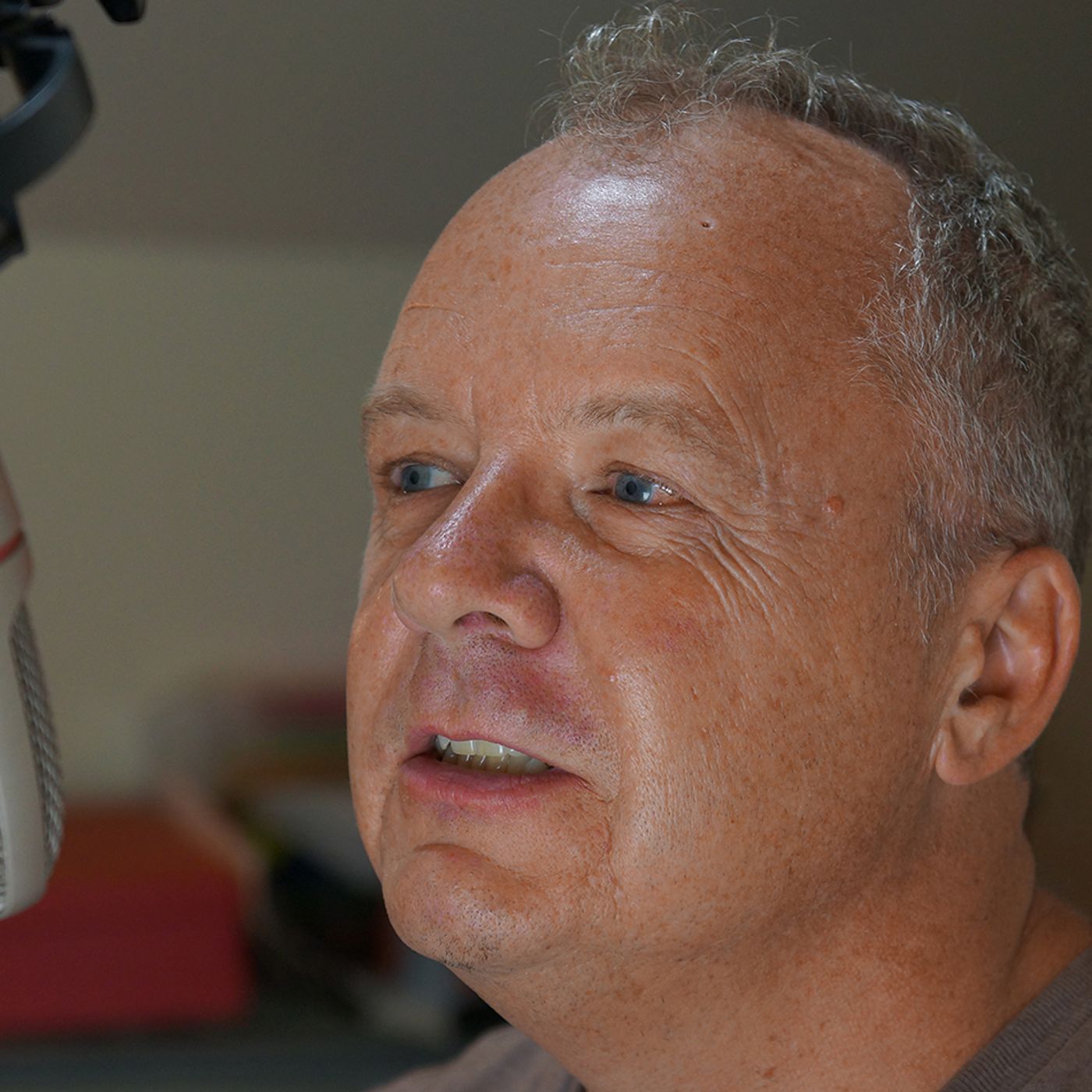
20 Nov '14 - Are Three NBNs Better Than One?
The third of those weighty tomes from the Vertigan Review panel was all about market power and regulation. It reckons that the current model, with NBN Co controlling the full spectrum of technologies, “inhibits the development of competition, is difficult to effectively regulate and results in unacceptable risks to, and costs on, taxpayers and consumers”.The recommendation is that NBNCo is actually split into three competing business units – one for each of the three main technologies. This, they reckon would provide a market structure in Australia where similarly sized networks would compete, much as happens in North America and significant parts of Europe. But are they right?In this week’s CrossTalk we discuss how, if that’s the end game, the best opportunity for success is to enforce the separation sooner rather than later.We hear some of the discussion on the topic at this week’s NBN Rebooted conference in Sydney, including economist and Vertigan review panellist Henry Ergas, ACCC Chair Rod Sim, Opticom Regulatory Officer Phil Smith, Macquarie Telecom’s Matt Healy and NBNCo Chief Customer Officer John Simon.What are your thoughts – leave a message on the CrossTalk feedback line: 02 9304 5198

13 Nov '14 - The Metadata Bonanza
Two years of metadata could be great news for lots of people – not just law enforcement agencies, but for courts wanting to subpoena evidence – even content owners wanting to trace potential copyright infringers.Patrick Fair, Partner in law firm Baker and McKenzie and John Lindsay, Managing Director, Lindsay Strategic Advisory, suggest the new law could have significant changes to civil law, not just our fight against terrorism.But science journalist Wilson da Silva suggests it’s not all bad news – the legislation could enforce the collection of big data that could be used for a myriad of beneficial outcomes. Telcos could even use it as a new revenue stream.Maybe, but John Stanton, CEO of the Communications Alliance, warns it could also see many smaller service providers go to the wall.

6 Nov '14 - The Nitty Gritty of the MetaData Bill
Communications Minister Malcolm Turnbull has been quick to point out that the intent of metadata legislation is to collect phone data records and a user’s session IP addresses. Yet the wording of the Bill tabled in Parliament last week seems to suggest so much more.In this week’s CrossTalk podcast we look at whether online behaviour could still be accessed by enforcement agencies, even though a note attached in the bill says it shows, beyond doubt, that the storing of web browsing history will not be required. Could scope creep see DNS records stored and used, in effect helping map out your online behaviour. And, when the bill talks about details of communication between devices, what if one of those devices is a web server – couldn’t the bill then be asking for the IP address’ that you visit.In short, if the intent if just to gather originating IP addresses, why write a Bill so easily open to reinterpretation?Phil Dobbie talks with:-Patrick Fair, Partner in law firm Baker and McKenzie-John Lindsay, Managing Director, Lindsay Strategic Advisory-John Stanton, CEO of the Communications AllianceNext week we look at the implications of telecommunications companies storing vast quantities of data. Got something to add? Call 02 9304 5198 and leave your comment.

30 Oct '14 - Software is the Future, Are We Ready
Telcos made money from voice, SMS and data. How do they stand when it comes from capitalising on the next big wave – digital services.The Cloud is part of this future, of course, and vendors are repeatedly telling operators they can add value by allowing applications and enterprises to control their needs through open APIs, moving to the concept of virtualised networks. Will telcos take head of their advice, or will someone else get there first?On this week’s Crosstalk Scott Sneddon from Nuage Networks, Jeremy Deutsch from Equinix, Ian Watterson, from CSG and futurist Skeeve Stevens all give their views on the future of telcos in our digital future. We also discuss what needs to change if Australia is to capitalise on a future where software, rather than content, is king. Will we have the bandwidth apps will demand? Do we have the right regulations in place to ensure nobody gains too much market power. We hear from David Epstein from Optus and Richard Bean at the ACMA.Finally, are we providing the education required to create a nation of software developers. No way, says Scott Farquar, co-founder of Atlassian.So, isn’t a real digital strategy that addresses all of these issues long overdue?
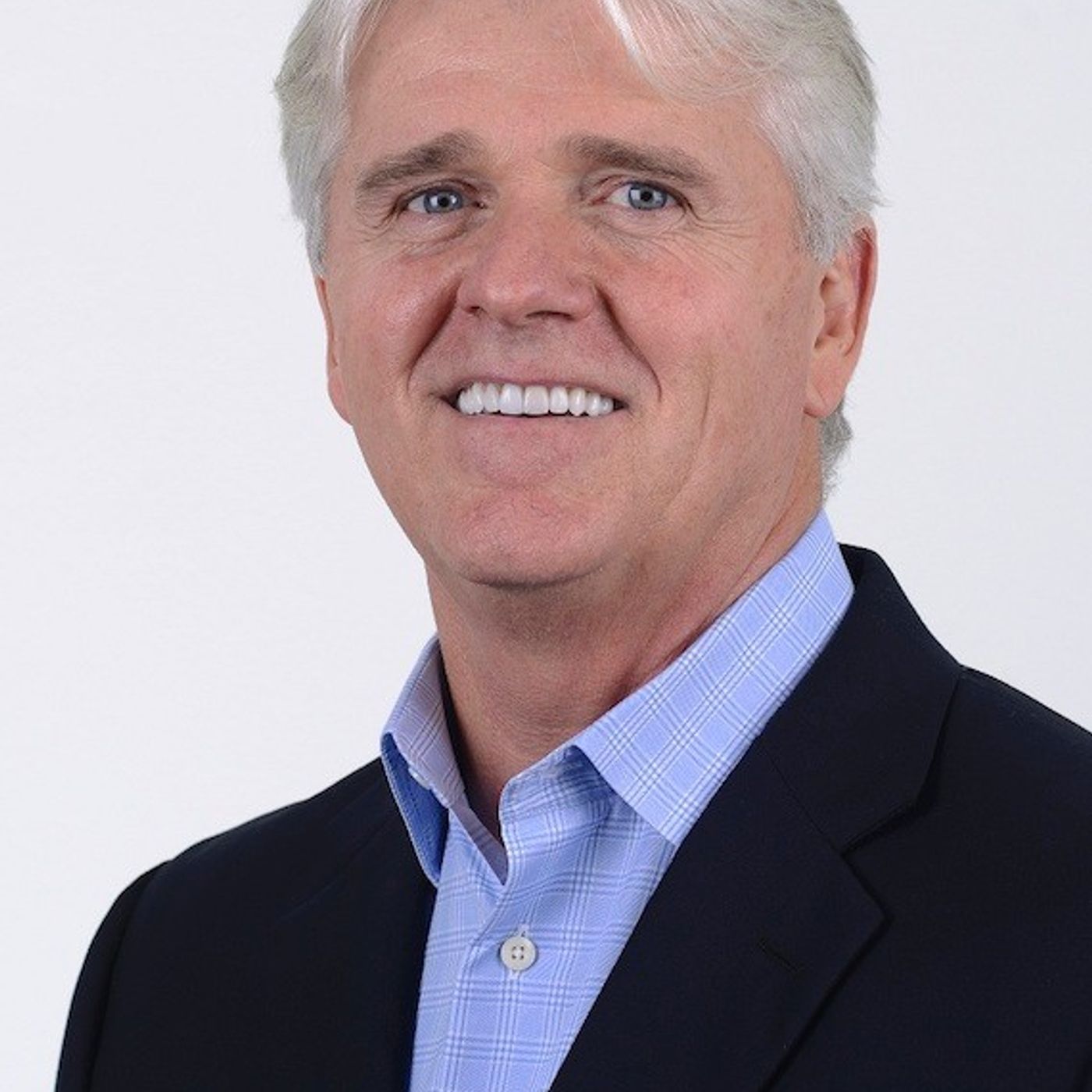
23 Oct '14 - Bill Morrow with NBN's reality check
Bill Morrow has to deliver broadband to every home in Australia by 2021, with a minimum service level and a guaranteed rate of return, without extending the government’s equity commitment beyond $29.5 billion. Can he do it? Well, he needs to spend more time looking at the figures before he can give a definitive answer, but admits it’s the biggest challenge he has ever faced. In this exclusive CommsDay interview he admits that progress was slowed down by the change in government, although it is doubtful they would have reached the numbers forecast in the Corporate Plan from 2012. He says they will catch up, expecting to connect 25-30 thousand premises each week with the multi-technology mix, passed per week.In this wide ranging interview we talk about:-Financing the NBN-The release of the Corporate Plan-Will Telstra be paid more?-Meeting ARPU expectations-Pricing models-NBN’s product set-Progress on fibre to the node-Progress on HFC-Our place in the world league table of Internet speeds
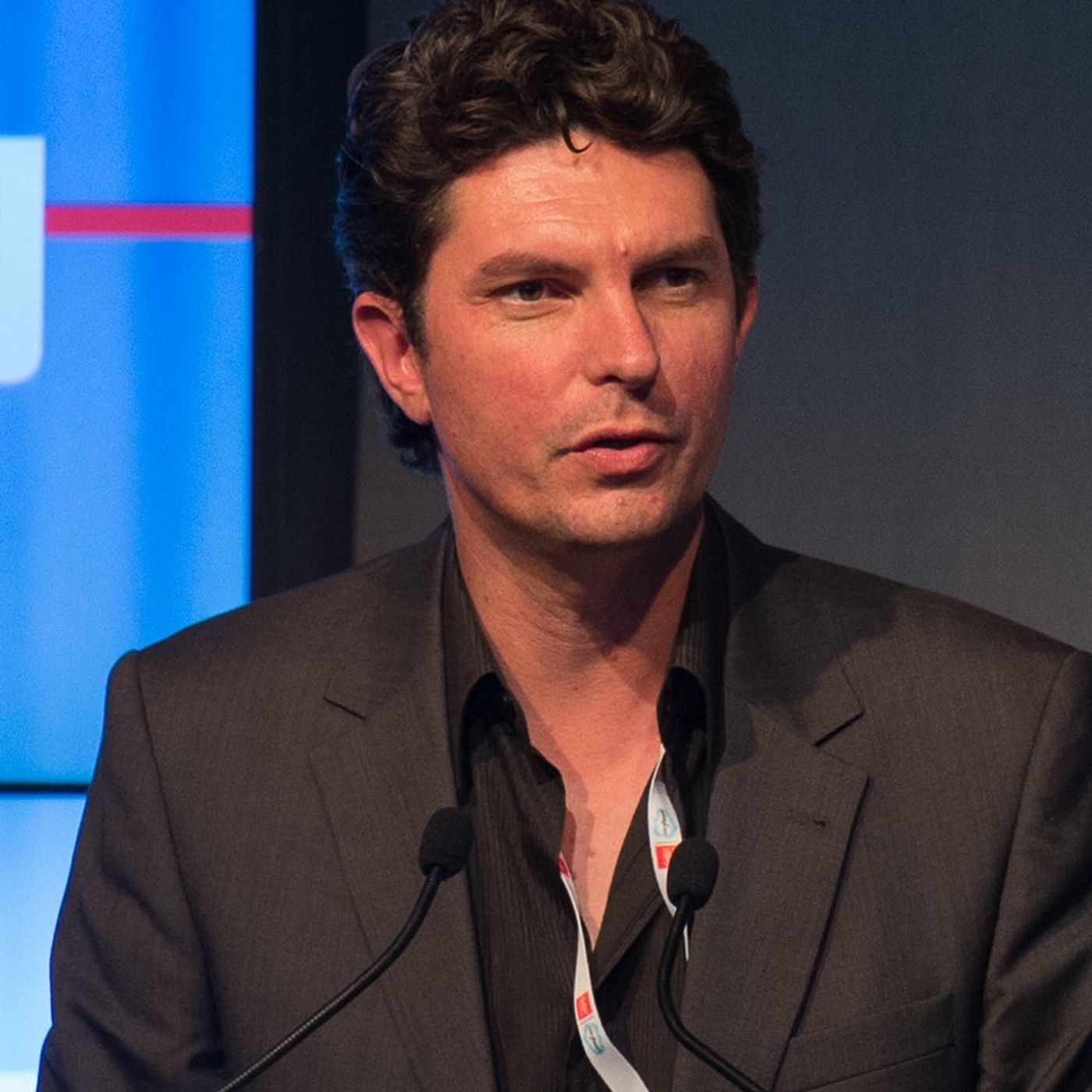
16 Oct '14 - Are Data Retention Laws Imminent?
At last week’s CommsDay Congress in Melbourne Greens senator Scott Ludlam warned that data retention legislation could be tabled in Parliament as early as this month.That came as a surprise to John Stanton, CEO of the Communications Alliance, who said that there were many details still to be worked out with the Attorney General’s department.John Lindsay, former CTO at iiNet, is one of many in the industry concerned about the proposals – particularly if it allows authorities to ferret around for information.So, will it happen? Ludlam reckons it’s a real possibility. “Senator Brandis is off the chain and out of his mind and we can’t allow this to happen on our watch,” he said.

10 Oct '14 - The Wireless Winners
This week's CrossTalk comes from the CommsDay Melbourne Congress, where CommsDay and P3 Communications announced the winner of the inaugural Australian mobile benchmark study (http://ow.ly/CjXEg). The winner didn’t come as a complete surprise, but the other two networks came close in certain measures. In fact, the CTO of third-place Vodafone Benoit Hanssen says he expects to lead the way in a matter of months.The real winner, though, is the Australian consumer. We have some of the best mobile broadband in the world, thanks to the availability of spectrum, relatively low population density and healthy competition. Mike Wright, Telstra’s group managing director, networks, explains how low frequency spectrum is helping to keep up with consumer demand, particularly the 700MHz gained from the digital dividend auctions. So, how will Vodafone compete, when they didn’t bid?On this week’s CrossTalk we also hear from:-Dr Ziggy Switkowski, NBN Co chair-Paul Fletcher MP, Parliamentary secretary to the communications minister-Chris Althaus, CEO of the Australian Mobile Telecommunications Association
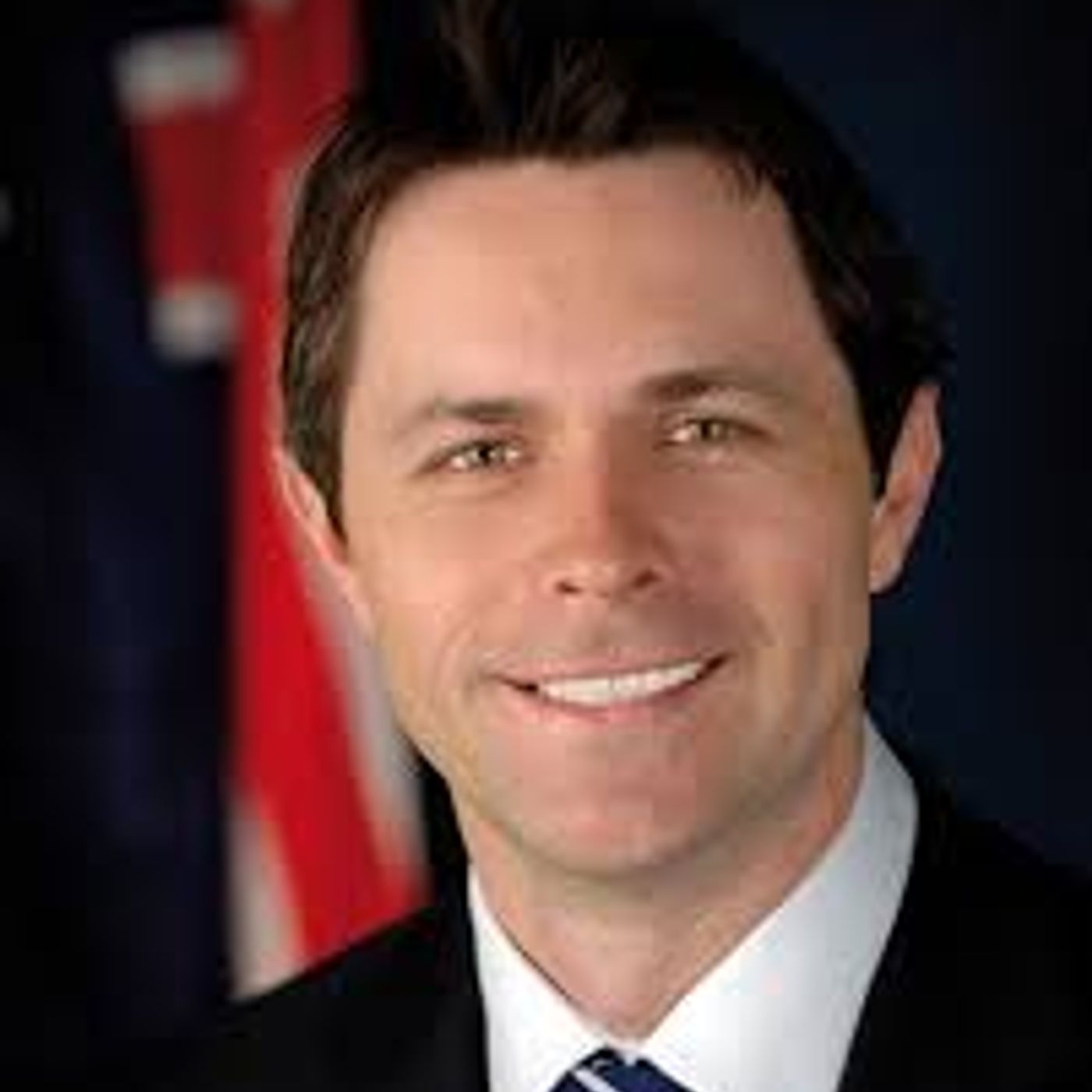
2 Oct '14 - Jason Clare: Still the fibre purist
Jason Clare, shadow communications minister, is still convinced fibre to the home is the best technology for NBNCo to be rolling out. He says the Liberal approach is not focused on the future and it is tying one hand behind our back.In an exclusive interview for CommsDay he talks about the NBN, how it could be improved and why he believes the government approach is wrong. We also discuss metadata and the influence that Telstra still has on the industry.This week’s program also continues the debate on mobile termination rates and Vodafone’s claims that any further reductions are simply a subsidy to Telstra who, they allege, haven’t passed the reduced costs to fixed to mobile callers. Here what the ACCC had to say when we asked if they stood by their own analysis that showed that reductions were being passed on.

26 Sep '14 - Mobile termination rates: distorted by fixed line callers?
The ACCC has asked the industry to comment on proposed changes to the rate carriers charge each other to complete calls on their mobile networks – and the methodology used to arrive at that price. Whilst all carriers agree the price charged should reflect cost, two of the three reckon Telstra’s fixed line network is distorting the picture.On this week’s CrossTalk Vodafone’s Matthew Lobb argues that Telstra has not passed on to its fixed line customers previous reductions to mobile termination rates. He says it means the reductions have increased Telstra’s margins.Telstra’s Regulatory Director Iain Little says this is not the case, pointing to the ACCC’s annual Telstra Compliance Report, which monitors Telstra’s retail prices.Optus, meanwhile, suggests that the same cost methodology should be used for mobile and fixed termination rates, otherwise there’s a danger that, over time, Telstra will receive the same revenue for terminating a fixed call as other carriers get for finishing a mobile call, despite the level of investment in new networks.Julian Ogrin, Managing Director of Amaysim, argues that whatever the approach costs should come down, so termination rates reflect those in Europe. Presumably he thinks this will mean lower wholesale rates from Optus, but we explain what that’s not necessarily the case.In conclusion, whichever way you look at it, its complicated. Again.Add your comments to be featured on future editions of CrossTalk by calling 02 9304 5198.Subscribe on iTunes: https://itunes.apple.com/au/podcast/cross-talk/id597713172?mt=2
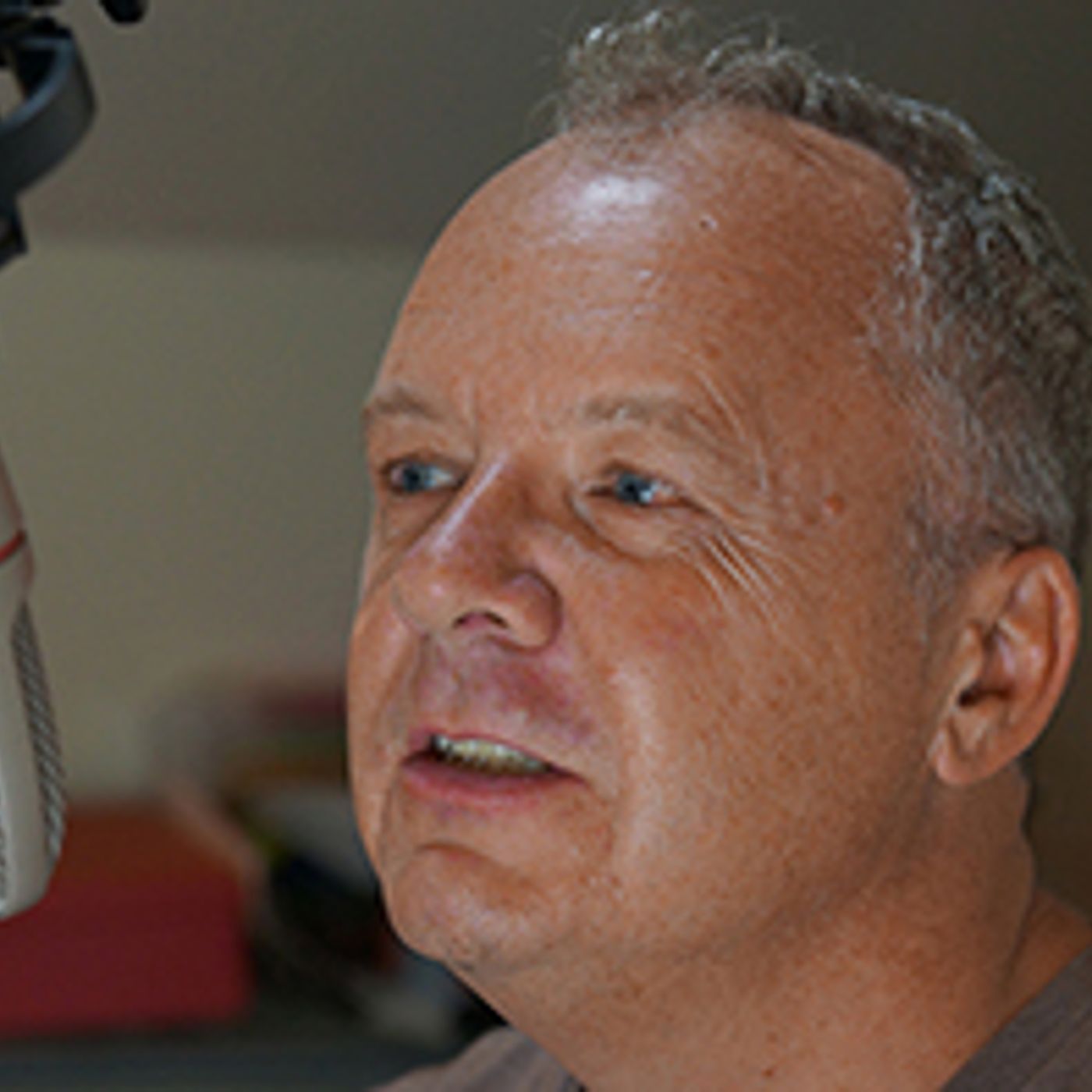
18 Sep '14 - Complaints Down. Time to Ease Regulation?
The TIO annual report came out this week with big drops in consumer complaints, largely thanks to mobile network improvements. Does this mean that investments in infrastructure will always be the driver of customer satisfaction and attempts to regulate other issues are really addressing the symptoms rather than the cure. We’re also seeing that consumer issues change over time. Whilst complaints in the TIO report are generally down, those concerned about excess usage charges are on the increase. Does this mean the TCP code needs to do more to address this issue – and, what of all future issues that come up?A better approach might be to ensure that there is more transparency of information. The CommsDay P3 2014 Mobile Benchmark might help here, giving unprecedented measures across the quality of all three mobile networks.This weeks guests include:•John Stanton, CEO of the Communications Alliance•Jennifer McNeil, General Manager of the ACMA’s Content, Consumer and Citizen Division•Teresa Corbin, CEO of ACANN•Petroc Wilton, CommsDay Group Editorial DirectorAdd your comments to be featured on future editions of CrossTalk by calling 02 9304 5198.Subscribe on iTunes: https://itunes.apple.com/au/podcast/cross-talk/id597713172?mt=2

12 Sep '14 - Turnbull: The NBN is still a risky undertaking
On Friday the Communications Alliance staged a workshop to discuss the latest recommendations from the Vertigan Review. Communications Minister Malcolm Turnbull sat alongside economist Henry Ergas, NBNCo CEO Bill Morrow and Opticomm’s Chief Regulatory officer Phil Smith.Although there weren’t too many surprises – infact, none – it was a useful discussion for taking stock of the issues currently on the table.One is risk. Malcolm Turnbull flagged it. Delivering a project of this size is still not a foregone conclusion. Bill Morrow talks about his escalating rollout expectations and, though achievable, will be made more difficult if the landscape changes. That could include TPG – and possibly others – rolling out their own last mile solutions. Which gets down to the need for strong regulatory controls. Henry Ergas says, however good the cost benefit analysis is (he seems to think it’s very good), it amounts to very little if the project is rolled out with the wrong regulatory and governance framework.That’s a teaser, perhaps, for the morsels contained in the next paper to come from the Vertigan panel – the one we hoped would be released by now, but Malcolm Turnmbull has to show it to the Cabinet first.There’s also some further discussion – following on from Crosstalk a couple of weeks ago – about the value of willingness to pay as a measure of social benefit. Strictly applied, the findings of the cost-benefit analysis show the benefit in regional Australia is outweighed by the cost. In that case, why build it?

4 Sep '14 - Video Collaboration: Why is it slow to take off?
Peter Ulander, Cisco’s VP of Collaboration, says he recently saw AT&T’s first video phone. It was about 50 years old. Today many of us have the capability to make video calls and join conferences, but we don’t, why?Ulander says it’s because it’s been too difficult. Cisco’s new MX Series systems are designed to make video conferencing easier and more affordable. They also look pretty nifty and have some handy features.But Chris Ryan, MD of Attend Anywhere, says WebRTC is the big step forward: no need for fancy kit, just a camera, mic and web browser. He says the real stumbling block is that people just don’t see the benefits they can derive from using video.The impact on businesses could be huge. John O’Mahony, a director with Deloitte Access Economics, says collaboration delivers $46 billion to the economy each year – it could be more if more companies embraced the enabling technologies, including video.Everyone agrees that video has been too siloed in the past and needs to be integrated into business processes. The question is, who does that – a vendor like Cisco, or an online supplier like Google?

28 Aug '14 - Thoughts on Vertigan’s NBN Cost Benefit Analysis
The cost-benefit analysis on the NBN has highlighted that, beyond a certain speed, there are no incremental benefits derived from faster broadband. The assumptions on that speed, plus those around people’s willingness to pay, are central to the findings of the NBN cost benefit analysis delivered by the Vertigan panel and made public this week.This week on Crosstalk we discuss those assumptons with Guy Cranswick, advisor to IBRS and Richard Denniss, executive director at the Australia institute. We ask, despite Malcolm Turnbull deriding the Labor party for not providing one, whether it really adds much to the equation – the fundamental premise had already been argued rigorously by the Communications Minister.The only surprise is that the findings show that the net benefit declines when the non-fixed footprint is factored in. The rational conclusion would be to forget about the last 7 percent of the population. Another alternative, discussed with Dan Lloyd, director of strategy and corporate affairs at Vodafone, is to share the costs from other providers trying to reach the same households. Subscribe to CrossTalk on iTunes: itunes.apple.com/au/podcast/cross…id597713172?mt=2

22 Aug '14 - Metadata - what to keep
The government’s plans for compulsory data retention has opened a can of worms. Exactly what metadata should be retained? The Attorney General George Brandis got a little confused two weeks ago when asked on Sky News what was planned. He said the government wasn’t interested in keeping your web browsing history but it does want to store IP addresses. What he almost certainly meant to say was he wanted to keep your originating IP address that’s assigned to you when you start an internet session.This week on CrossTalk we look at what the government could expect to do with that information, particularly if it’s in conjunction with information from authorities in the US. Much as it would be useful to attach a user to an IP address associated with suspicious behaviour online, there are significant limitations in this approach.What else could the authorities want? We discuss metadata, surveillance and the possible involvement of US authorities with:-Paul Brook, Director of Internet Society of Australia-Steve Dalby, Chief Regulatory Officer at iiNet-Mike Maharrey, National Communications Director at Tenth Amendment CenterSubscribe to CrossTalk on iTunes: itunes.apple.com/au/podcast/cross…id597713172?mt=2

14 Aug '14 - What is the Internet of Everything, anyway?
Cisco’s Ken Boal describes the Internet of Everything (IoE) as the “next grand era of the internet”. So, what exactly is it?A key element is the use of data analytics. The Internet of Things seems a myriad of devices connected online, but the IoE uses the data they gather to change the way we do things. It could influence practically every aspect of our lives.Isn’t there a danger, though, that we gather data because we can, without it necessarily providing any benefit. Data analytics specialist Dicken Doe doesn’t think so. He thinks companies should collect what they can, even if the immediate benefit isn’t obvious.That’s pretty much the approach of Propellor, a company that helps process data gathered using drones. Cofounder Francis Vierboom admits he doesn’t know what the uses of drones will be, he just senses that more and more companies will find some benefit.Perhaps that is the secret to success with the growth of the Internet of Everything – work more on hunches than business cases. Perhaps the old philosophy of ‘build it and they’ll come’ still applies. Or at least ‘collect it and you’ll find a use for it’.Subscribe to CrossTalk on iTunes: itunes.apple.com/au/podcast/cross…id597713172?mt=2

7 Aug '14 - Mobile Termination: Is The Best Rate Zero?
This week the ACCC launched an inquiry into the wholesale pricing for mobile termination, releasing a discussion paper and inviting industry submissions. Should prices be lower? How should they be calculated? Economist John DeRidder suggests it is important to follow a cost-based approach, but perhaps switching from the traditional bottom-up TSLRIC+ approach to a top-down building block approach favoured in other utilities. He is against the European pure-incremental value approach, which attributes only the specific costs required to offer a wholesale termination service.Joshua Gans, Professor of Innovation and Entrepreneurship at the University of Toronto, prefers the European way. He was involved in the ACCC’s early work on establishing a realistic declared price, but these days he thinks the only sensible price is zero, particularly as calls migrate to LTE, where it will be difficult to differentiate from other data.We also pick up on last week’s program on data retention, where we suggested greater definition was required on exactly what was included in the term metadata. It’s clear from interviews with the Attorney General this week that’s he’s not sure either.Subscribe to CrossTalk on iTunes: https://itunes.apple.com/au/podcast/cross-talk/id597713172?mt=2

31 Jul '14 - Surveillance Reform: The Devil's in the Detail
The government is proposing significant revisions to the telecoms intercept law. Unlike the UK, where legislation was rushed through with little consultation, there is a senate committee consulting with the public and industry on the proposal.It’s another stab at trying to get telecommunications companies to retain metadata, including a swag of transitory information that is deleted perhaps minutes after it is collected. The industry, understandably, argues that the cost of storage needs to be met by someone, just not them. But the broader question is, is it in the public interest? How do you achieve the balance between preventing terrorism without unnecessarily invading your privacy.You’ll hear from some of those appearing at the senate committee’s public hearing in Sydney this week, including:-Stewart Baker, former first Assistant Secretary at the Department of Homeland Security -John Stanton, CEO of the Communications Alliance-Chris Althaus, CEO of the Australian Mobile Telecommunications Association -Steve Dalby, Chief Regulatory Officer at iiNet-Nigel Waters, The Australian Privacy FoundationAs we discover, a blanket approach offering rich metadata to any law enforcement agency that wants it is probably not the best way forward. There needs to be a clearer definition of the various types of metadata, some of which should require a warrant to access.

24 Jul '14 - Vertigan and the Future: It’s Complicated
On this week’s CrossTalk Phil Dobbie, back from a month’s break, tries to get his head around the first report from the Vertigan Panel, the group charged with providing recommendations for telecommunications regulation and the long awaited cost benefit analysis.The first report focuses on access regimes. With the help of James Halliday, partner at law firm Baker & McKenzie, we walk through some of the recommendations from the panel, including the option for NBNCo to offer discriminatory pricing and the proposal to make Vectored VDSL a declared service. iiNet’s Chief Regulatory Officer Steve Dalby thinks it’s less clear in other important areas – for example, in the right for access seekers to turn to the ACCC when a supplier fails to provide a satisfactory resolution. Currently, he says, when dealing with Telstra or NBNCo, it’s pretty much a take it or leave it situation.Phil Dobbie speculates on the circumstances in which the recommendations apply – is it based on an NBNCo model similar to today’s (simply changing the technology mix) or a situation where NBNCo’s access role is superseded by other providers. It’s difficult, surely, to provide a clear set of proposals without government policy tied down in detail. Perhaps the answer is reliant on the cost-benefit analysis. Perhaps not.

18 Jun '14 - The C-band debate. Just the start in the quest for spectrum?
Debate hotted up at the Asia Pacific Telecommunity (APT) Preparatory Group Summit in Brisbane last week. Industry leaders from 32 Asia Pacific countries gathered to discuss spectrum allocation, including the use made of C-band, the 3.4 – 4.2 GHz spectrum used for satellites. Should some, all or any of it be reallocated for the use of international mobile telecommunications (IMT)?In this week’s CrossTalk Chris Chapman, chair of the ACMA, talks about how nations reach agreement on spectrum allocation and Bob Horton, a consultant to the satellite industry, gives his views on the likely outcomes from the discussions.But the debate about C-band relates to a far broader question about how spectrum is allocated. Other existing uses will come into question as demand for IMT increases over the next few years. Phil Dobbie asks Chris Althaus, CEO of the AMTA and Reg Coutts, chairman of Telsoc, whether now is the time for a broader market–based allocation model.

13 Jun '14 - All Noise on the Western Front
Three companies are battling it out to provide a new submarine cable link between Perth and Asia. It’s a route currently served only by SeaMeWe-3, an outdated network between Australia, Asia and Europe built in 1999. With more data stored in Asia there’s a clear business case for a new west coast link – but not for three. As Ovum Research Director David Kennedy suggests, it’s likely only one will be viable. So, it’s a race to the finish line.In this week’s CrossTalk Phil Dobbie talks to Mark deKock, CEO of Trident, one of the companies battling it out in the west. The other two are Nextgen’s Australian Singapore Cable and Bevan Slattery’s Sub Partners, planning to run from Perth to Singapore via Jakarta. Former iiNet and Internode CTO John Lindsay describes Bevan’s approach as “deliciously disruptive”, selling customers spectrum rather than capacity, so users can implement their own methods of improving throughput.So who will win? Listen and judge for yourself, as CrossTalk watches the battle on the Western Front.What do you think? Call the CrossTalk feedback line on 02 9304 5198 and leave a message.

5 Jun '14 - Net Promoter Score: The Pros and Cons
The telco world has embraced the idea of the Net Promoter Score. Why? Because its simple. Ask customers how likely they are to recommend you to a friend and you get the net score of your promoters versus detractors. It’s used to incentivise staff in many telcos around the world and is a key measure in the turnaround happening at Telstra. But does it disguise the need for a quantum shift in customer improvements?Martha Brooke the founder and program director of Interaction Metrics in Portland, Oregon says it has to be treated with caution, though. For a start it’s easy to cheat the system. Whenever a measure influences peoples’ pay they will always find a way to fudge it. Even if the NPS is seen as an effective measure of customer satisfaction it doesn’t tell you how to fix issues. But there are tools for that. David Stevenson, General Manager for Motive Customer Experience Solutions at Alcatel Lucent, says many problems now relate to devices – tracking events at the network level can help identify issues and can be added to a knowledge base of worldwide symptoms that might be caused by a particular app on a particular device, for example.That’s all well and good but there are some significant issues that telcos have been slow to resolve – like bill shock. Industry analyst Paul Budde says it’s an example of how the industry doesn’t want to change, otherwise it would have fixed the problem long ago.Which raises the question – faced with a short term revenue hit or a hit to the NPS, which would most telcos choose? Do they really have their heart set on customer experience or does NPS simply provider a metric to show that things are moving in the right directly, even if it’s at snail’s pace.

29 May '14 - May the Wi-FI Wars Commence
Telstra has announced a $100 million-plus strategy to build 8,000 new Wi-Fi access points across the country – Wi-Fi Nation is the rather grand title given to the project. Less than a week later iiNet has announced free Wi-Fi will be available in Canberra, where they’re building 700 new base stations. It’s an extension to their free Wi-Fi network in Adelaide and they’re looking for other local governments to partner with. These are two very different approaches, which one will win out?There’s another element to the Telstra plan. As Mike Wright explains to Phil Dobbie in this week’s CrossTalk, broadband customers can share their Wi-Fi devices to provide access to public users, in exchange for similar access when they are away from home. It’s part of a partnership with FON, who are offering similar services in other parts of the world. Telecommunications advisor John Lindsay, former CTO at iiNet, says it’s an approach that’s been tried before in this country, without much success. iiNet’s Greg Bader says he prefers to build networks with access points where people are. And partnerships with local government provides access to real estate that could otherwise be problematic.So who will win the Wi-Fi war? Telstra’s announcement is much bigger, but iiNet's networks are free. If it extended coverage it could scupper Telstra’s point of differentiation. Meanwhile, where is Optus in all this? All they could add was that they didn’t want to comment on Telstra’s WiFi announcement.What do you think? Call the CrossTalk feedback line on 02 9304 5198 and leave a message.

22 May '14 - How connected cars will change our lives
When you think of connecting cars to networks you tend to assume it’s all about infotainment. But, as Phil Dobbie explores in this week’s CrossTalk podcast, it’s more about big data.Jim Bak from Inrix explains how, for many years, his company has been collecting data on traffic patterns, to paint a real time picture of congestion and to predict trouble spots. Already well established around the world they are actively seeking partnerships in Australia.Matt Hatton from Machina Research says car manufacturers see connected cars as a means of differentiating their products, but isn’t there a danger that, without open standards, we could have each company developing bespoke solutions that can’t talk to each other?Cars talking to cars is crucial to the future, says Cisco’s Kevin Bloch. Networks will adapt to the concept of localised communication – between cars, for example – which his company is calling Fog computing (a much lower form of the Cloud).So, where will all the buzz around connected cars take us? Self driving cars, perhaps? And where in all of this does the telecommunications provider fit in?

15 May '14 - Out with TUSMA, now, in with a new USO
The government announced that TUSMA – the Telecommunications Universal Service Management Agency – will disappear and its work wound into the shrinking Department of Communications.It’s a sensible move, given that TUSMA’s work was tied up heavily in an agreement that saw Telstra agreeing to meet the Universal Services Obligation for the next twenty years. Yes, twenty years.Over that time the rest of the industry pays Telstra a levy to ensure everyone has phone access, even though the access infrastructure will eventually be provided by NBNCo. Surely, then, the opportunity to receive the payment for meeting the USO could have been tendered out to other providers?The agreement also saw Telstra paid to maintain copper in areas outside the NBN’s fixed footprint. Clearly the belief was a standard phone line could not be delivered using anything other than a fixed line technology, even though Telstra, in its USO policy statement that they will consider “alternative transmission technologies such as satellite (and) radiocommunications”.So, isn’t Telstra getting paid a chunk of money by its competitors to maintain an outdated notion of what consumers want and need. While the government is back at the negotiating table with Telstra shouldn’t it be addressing that 20 year USO agreement and seeing ways of reducing the burden on the industry whilst guaranteeing realistic 21st century services to customers?They’re questions Phil Dobbie discusses with Mark Gregory, senior lecturer in electrical and computer engineering at RMIT University, and Matt Healy, the Public Affairs,Regulatory & Govt Relations Executive at Macquarie Telecom.What do you think? Call the CrossTalk feedback line on 02 9304 5198 and leave a message.

8 May '14 - Small Cells and pCells – can mobile win on speed and cost?
The early plans for the NBN ignored wireless as an access technology anywhere except regional Australia, where fixed technologies were considered too expensive.Since then cellular technologies have come along leaps and bounds and most vendors are talking about driving data throughput as much as 1,000 times. Could it ultimately become the most cost effective way of connecting to the Internet?On this week’s CrossTalk Andres Torres, Strategic Marketing Manager at Ericsson, talks about their approach to Heterogeneous Networks. Getting more out of your macro cells is part of the answer, as well as denser networks and the deployment of small cells. Mike Smathers, Head of Solutions Architecture at Nokia Solutions and Networks, says lots of small cells can create headaches if they are not coordinated – but their Flexi Zone product manages the behaviour of a cluster of small cells underneath a macro cell.So small cells and denser networks will go some way to meeting future demand, but California start-up Artemis reckons they are a step ahead of the competition with their pCell technology. CEO Steve Perlman explains how multiple devices could share the same spectrum, each enjoying full-speed downloads, even if you’re at the edge of a macro cell and there are hundreds of other users close by.If mobile technology is getting so fast sand so efficient do we really need the NBN to provide a fast fixed connection into our home? Telecommunications consultant Robert James says fibre needs to be near to your house – in the street, or perhaps in a neighbour’s house – but for many of us that last leg could be delivered by device, in the city or in the country.“People are deploying pCells in places where the operator plans to directly compete with cable and DSL providers for home services,” says Perlman. Perhaps fixed to mobile substitution has begun.Add your thoughts at any time by leaving a message on the CrossTalk feedback line: 02 9304 5198.

1 May '14 - NBN: Fixing the Delays and Disappointments
At the CommsDay Summit last month Tony Warren, Telstra Group Executive for Corporate Affairs, said NBN ‘s customer handover process was plagued with delays and disappointment. It’s of particular concern as the deadline looms for the disconnection of copper in the NBN’s first fibre service areas. Householders have till May 23rd to put their orders in and, even if they do, NBNCo still has to build the lead-in from the street.NBNCo’s demand-build approach seems to be at the heart of the process issues. Rachel McIntyre, National Broadband Product Manager at iiNet, says customers receive letters from NBNCo telling them services are available, when they’re not. The lead-in still had to be built and often there weren’t people available to conduct that installation.John Simon, Chief Customer Officer at NBNCo, says a lot of these processes will go away as the company moves to a drop-build approach. In other words, lead-ins are built at the same time as fibre is delivered down the street. This might solve the problem, but the issue becomes more complex if other infrastructure providers are allowed to compete. Do they need to follow the same customer handover process? If that happens Phil Smith, Chief Regulatory Officer at Opticomm, says we need to look at separating the operational processes from the network operator. Another level of complexity to throw into the NBN cobweb.Add your thoughts at any time by leaving a message on the CrossTalk feedback line: 02 9304 5198.

26 Apr '14 - Where next for mobiles?
Mobile devices are now our preferred means of connecting to the internet. That’s a big shift from the days before the iPhone, when mobile broadband was slow and devices difficult to use. So, imagine what the next few years will bring.This week on CrossTalk we look into the future of networks, with ideas gathered from some of the speakers at this year’s CommsDay Summit in Sydney. You’ll hear talk about network virtualisation, APIs and user control. And host Phil Dobbie asks, if these new agile networks are opened up for access by innovative companies, perhaps it’ll also be time for network providers to give up the one thing they’re generally very bad at, dealing with the end user.You’ll hear from:Jason Ashton, BigAir CEO;Ken Kralick, IBM Telecomms Industry Global Solution Executive; Karl Horne, CTO Asia Pacific for Ciena Networks ;Optus MD for Networks, Vic McClelland;Steve Grubb, Fellow at Infinera; andJulian Ogrin, Amaysim CCO Add your thoughts at any time by leaving a message on the CrossTalk feedback line: 02 9304 5198.

16 Apr '14 - Should anyone compete against the NBN?
TPG has created a dilemma for the Communications Minister, Malcolm Turnbull. They want to deliver fibre to the basement to 500,000 premises, before NBNCo gets there. Turnbull’s conservative stance probably supports their endeavours, but he has inherited a business model that demands every skerrick of revenue it can muster. He can’t afford to lose so many subscriptions from the NBNCo balance sheet. So what should he do?Perhaps it’s all bluff and bravado. As Phil Dobbie discusses in this week’s CrossTalk podcast, the rollout is a big risk for TPG. Even though they will be asking for exclusive access in the apartments they service, telecommunications regulations suggest there’s nothing to stop someone else coming along and plugging customers into their networks. Sadly, such a move would wreck broadband speeds for everyone in the block. Does the Minister need to legislate to protect us from the detrimental effects of competition?In new housing estates the question is more straightforward. Does NBNCo really need to play any role here? Can’t it be left to private enterprise? All it takes is a change to the promise that everyone will be connected for free. If you can afford to buy a new house, surely you can afford to pay for someone to hook you up. After all, you’ll be getting faster speeds than anyone else.What do you think? Call the CrossTalk feedback line on 02 9304 5198.

10 Apr '14 - The options for NBN in Regional Australia
At the CommsDay Summit in regional Australia Communications Minister Malcolm Turnbull dropped a bombshell – higher than expected demand and insufficient mobile spectrum means that an estimated 200,000 to 300,000 premises would not be able receive access to the NBN. Money can fix any problem, of course, but the government is already throwing a lot of money at providing coverage to the last 7 percent of the population.So, something clearly has to change. This week on CrossTalk we look at some of the alternatives, including turning the switch from fixed to mobile on NBNCo’s wireless base stations – something that would satisfy Vodafone’s group strategy director Dan Lloyd. But isn’t there an option to extend VDSL coverage to more parts of the country, something that Malcolm Turnbull spoke about on Crosstalk a year ago.You’ll also hear from Gilbert & Tobin’s Cameron Whitfield and Ovum’s David Kennedy on the program.

3 Apr '14 - Will Rules Ever Make Children Safe Online?
In January Paul Fletcher, the Parliamentary Secretary to the Minister for Communications, announced plans to enhance online safety for children. A discussion paper was published, prompting a wide variety of feedback.Many agree with the proposal for a Children’s E-Safety Commission, although opinions vary as to the extent of powers associated with the office. Some argue it should be focused on education on cyber-safety, whereas others see it as an enforcement role that will expedite the removal of harmful content and, perhaps, expedite the charging of offenders.Fletcher’s paper also asked whether there is a need for a new, simplified cyber-bulling offence. Section 474 of the Criminal Code already declares it an offence to use a carriage service in ways that would be seen as menacing, harassing or offensive. But, perhaps, there’s a need for more specific wording to make it clear that activities such as ‘happy slapping’ – the online posting of videos of real-life bullying attacks – cannot be tolerated.Many in the internet industry say laws exist and most players are keen to do the right thing – the appointment of an E-Safety Commissioner is just another level of bureaucracy. But this week’s CrossTalk shows that the argument isn’t that black and white, as Phil Dobbie talks to:- Karen Annand from Chloe’s Law;- Nigel Phair from the Centre for Internet Safety;- Chris Althaus from the Australian Mobile Telecommunications Association; and- Chris Berg from the Institute of Public Affairs.What do you think? Call the CrossTalk feedback line on 02 9304 5198.

27 Mar '14 - Should the ACCC be charged with regulation?
The framing paper for the Vertigan Review asked whether the ACCC should be responsible for the economic regulation of the telecommunications industry. It sparked less interest than the weighty topics more specific to the NBN. Many share the view of Patrick Fair, partner at law firm Baker & McKenzie, who believes that the ACCC has a lot of vested knowledge and there’s little need to change.Ian Martin, telecommunications analyst at RBS Global Banking has a different view. He says in this week’s Crosstalk podcast that the ACCC's errors calculating the risk of investment are largely responsible for the likely poor return on the NBN. Stephen King, Professor of Economics at Monash University, also believes the role should move from the ACCC. He talks about the inherent conflict as a competition regulator who’s also involved in designing the structure of the industry – it is an umpire and a player.So, where should the role sit? John Stanton, CEO of the Communications Alliance, says there’s scope for greater involvement from within the industry. That’s probably right, but it’s hard for a democratic organisation to make decisions on competition when it impacts members – Telstra, for example. Stephen King suggests convergence of technologies means the role should move to ACMA. And Ian Martin reckons a specialist body would be better placed to deal with capital efficiency issues – perhaps one that covers other infrastructure intensive industries.The outcome could be “all of the above”. Or no change at all. We’re yet to see the submission from the ACCC but their stance is likely to be, “if it’s not broken, why fix it?” That’s a fair point, if it’s not broken.Give us your thoughts. Call 02 9304 5198 and leave a message.Subscribe on iTunes: https://itunes.apple.com/au/podcast/cross-talk/id597713172?mt=2

20 Mar '14 - Can Regulatory Reform Create Infrastructure Competition?
Last month the NBN Panel of Experts released a Framing Paper on regulatory issues around the National Broadband Network. They called for submissions, 40 of which are available on the Department of Communications website.In this week’s CrossTalk podcast Phil Dobbie suggests that most of the responses come from people who assume that NBNCo will continue with its task of providing broadband to every premises in the country. Does it have to be that way?Economist John de Ridder says the framing paper and the earlier regulatory review ignores the affordability question. He discusses how the network’s cost accounting is creating a time bomb that will make the financial model unworkable.So, is part of the problem that the NBN is trying to be a commercial entity rather than a social good? We discuss how cross subsidisation, so long as it exists, will make the idea of infrastructure competition unworkable.Two infrastructure providers offering fixed connections has already been shown to fail, says David Forman, spokesperson for the Competitive Carriers Coalition. Telstra and Optus had massive writedowns on their HFC networks and we’re too far down the track to see the sort of cable v DSL competition present in North America and Europe.Whatever competition exists only one company should have responsibility for the design and build of a fibre to the node network, according to recommendations of the Communications Alliance. Their CEO John Stanton explains how it’s necessary for the effective deployment of vectoring, the technology that could see VDSL speeds increase by 50 percent.Perhaps competition could exist, though, if NBN focused purely on regional Australia, with Telstra looking after the rest. We discuss the merits of encouraging Telstra to voluntarily separate with the opportunity to use its copper network to build new broadband products in capital cities and other contestable areas. Or they could choose not to, and somebody else does it instead. Maybe that’s the only way to see effective infrastructure competition – but it’s an approach few are talking about.Give us your thoughts. Call 02 9304 5198 and leave a message.Subscribe on iTunes: https://itunes.apple.com/au/podcast/cross-talk/id597713172?mt=2

13 Mar '14 - Taking Mobile Competition Further
Whilst Australia’s major centres are well served by three competing mobile networks it’s a very different story in regional Australia. Telstra claims its network covers 2.3 million square kilometres, whilst nearest rival Optus has a footprint of just 1 million.The government’s Mobile Coverage Programme has been accepting submissions from the industry as to how it can effectively spend $100 million to extend the reach of mobile coverage, whilst providing adequate competition. Matthew Lobb, Vodafone’s GM for Industry Strategy and Public Policy, welcomes the government’s plans. “Previous programmes have had a winner takes all approach,” he says in this week’s CrossTalk. This misses out on the opportunity for other carriers to make investment in an area.The answer could be for open access to shared infrastructure – such as mobile towers - co-funded by the government. Or it could involve the NBN. “The previous government had a very fixed, blinkered view of what NBNCo could do with its wireless network,” says Paul Fletcher, parliamentary secretary to the minister for communications. He says the new government is open to more possibilities. Could those possibilities create effective competition in those vast parts of the country where Telstra is currently the only mobile provider?Give us your thoughts. Call 02 9304 5198 and leave a message.Subscribe on iTunes: https://itunes.apple.com/au/podcast/cross-talk/id597713172?mt=2
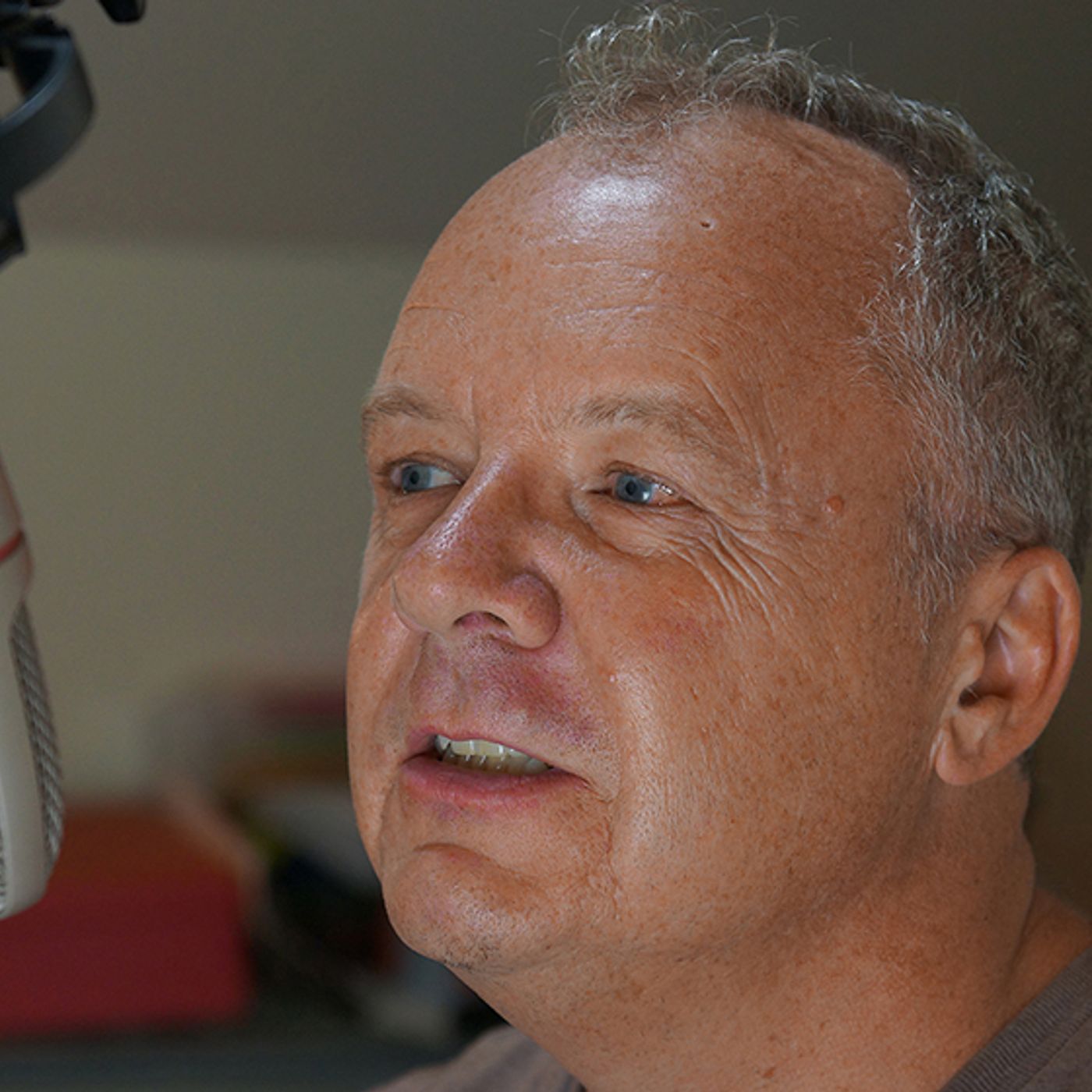
6 Mar '14 - Blackspots, where and what next?
The government released the complete Broadband Availability and Quality report this week and launched the MyBroadband website. The conclusion is that 1.4 million premises across Australia are in areas with poor broadband. Herein lies the problem – not every property in those areas will have poor broadband, and there will be others with bad connectivity in an area where broadband is generally good. The report groups findings into small areas – 78,000 of them - rather than looking at broadband quality on a house by house basis.It’s a good start, but is it all that useful? Mark Gregory, Senior Lecturer at the School of Electrical and Computer Engineering at RMIT University, reckons the Labor government went through a similar exercise when prioritising their roll out. Malcolm Turnbull clearly doesn’t agree.Even so, as Tony Brown, senior analyst at Informa Telecom, points out, there are many other factors that determine the order of a rollout. Prioritising areas without adequate connectivity might be the ideal outcome, but not necessarily that practical.Mark Gregory also questions the accuracy of the findings – in particular the categorisation of quality. As you’ll hear, he reckons it paints too rosy a picture on the state of broadband in Australia. This week he and Malcolm Turnbull have been fighting out the semantics on the pages of Technology Spectator.The government could obtain a more accurate picture of the state of DSL, of course, if Telstra released more of its data. But the telco will hang on that information as a bargaining chip with the government. Perhaps a rapid bit of crowdsourcing could help paint a more accurate picture, and give the NBN some valuable data to use when they start negotiating copper and HFC access with Telstra.Give us your thoughts? How useful is the MyBroadband website or the governments evaluation of broadband availability. Call 02 9304 5198 and leave a message.Subscribe on iTunes: https://itunes.apple.com/au/podcast/cross-talk/id597713172?mt=2

27 Feb '14 - WiFi - the next great disruptor?
Could Wi-Fi be the game changer when it comes to who yields the most power in the mobile space?In the US and Europe Wi-Fi hotspots are commonplace. Fixed and mobile providers offer them as a way of enabling customers to download more data without swamping their networks. Here in Australia a faster LTE deployment has meant there is more than enough capacity, for now. But what when it becomes a scarcer resource – will they turn to Wi-Fi hotspots to do some of the heavy lifting?Cisco’s Dr Robert Pepper thinks that it’s inevitable. But what if another service provider - an MVNO – gets there first? With a bout of Wi-Fi construction lately, you could be mistaken for thinking that was part of iiNet’s plan, but they have been quick to deny it. Still, Colin Griffith from the CSIRO, the birthplace of Wi-Fi, says the technology is rife for market disruption.Scratch Wireless is a prime example. Use one of their mobile phones to make a call and it’ll hunt for a Wi-Fi network and, if one is available, will make your call for free. Their premise is, everything else you send across Wi-Fi is free, so why shouldn’t your mobile phone calls?So, whether it’s MVNOs trying to divert voice traffic or data to WiiFi, the outcome is the same – lost revenue for the carriers. Unless they play a defensive strategy and get there first.Give us your thoughts? Could MVNOs use Wi-Fi to steal market share? Call 02 9304 5198 and leave a message.Subscribe on iTunes: https://itunes.apple.com/au/podcast/cross-talk/id597713172?mt=2
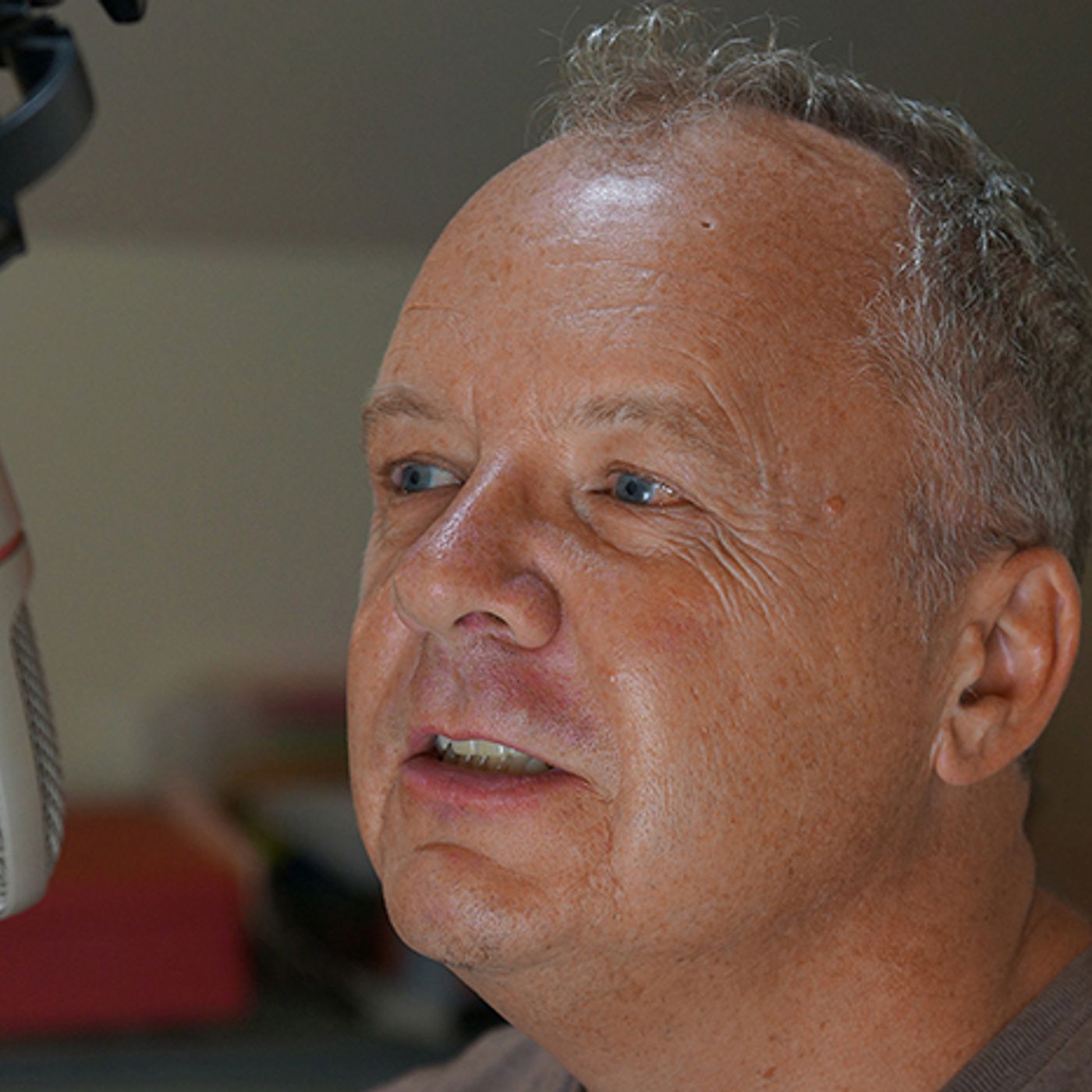
20 Feb '14 - Mobile networks in the cloud
One thing is certain about mobile networks, the demands placed on them will keep increasing. Cisco’s Virtual Network Index forecasts 41 percent annual growth in data traffic through to 2018. The US, already way ahead of us in per capita usage, will grow at 50 percent per year.In this week’s CrossTalk podcast Cisco’s VP of Global Technology Policy Dr Robert Pepper says one of the changing characteristics will be the growth in machine to machine communication. Their Australian CTO Kevin Bloch says this calls for a new approach to how networks are designed.That’s why, this week, Alcatel Lucent announced a network functions virtualization (NFV) protfoio – in effect, mobile network functions operating in the cloud. It means we’ll see less proprietary hardware sitting on networks and more software sitting on open platforms.Manish Gulyani says the new approach to virtualisation will meet the increasing demand for meeting new services, either by telcos themselves, their customers or third party app developers, “introducing more communication services into the web platform itself”.Phone companies that used to connect us up so we could talk to each other and now getting entwined in a very sophisticated world of applications, big data, automation and M2M communication. Will virtualised network functionality help them rise to the challenge?Call 02 9304 5198 and leave your thoughts, which we will include in future editions of the program.Subscribe on iTunes: https://itunes.apple.com/au/podcast/cross-talk/id597713172?mt=2

13 Feb '14 - Should ISPs worry about Foxtel?
Sometime soon Foxtel will become an ISP. Should other ISPs be worried, after all, when BSKyB tried it in the UK with Sky Broadband, they became the second biggest ISP in the country.Foxtel hasn’t reached into as many households as BSkyB has managed in the UK, so there are fewer customers ripe for the picking. But what if they try to leverage their exclusive content rights to bring customers over. Could Foxtel successfully grow their Pay TV share and win over a lot of broadband subscribers at the same time?It’s easy to imagine all sorts of outcomes when content providers decide to become network suppliers. Jon Lawrence, executive officer at Electronic Frontiers Australia says network neutrality is one of the issues to be considered.Mark McDonnell from BBY is less phased by the possibilities. He thinks Foxtel has more to lose from over the top providers like Quicxkflix. Could their move into internet provision simply be because they have run out of other ways of making money?Call 02 9304 5198 and leave your thoughts, which we will include in future editions of the program.Subscribe on iTunes: https://itunes.apple.com/au/podcast/cross-talk/id597713172?mt=2

6 Feb ' 14 - Is FTTdp worth waiting for?
Last year’s Strategic Review by NBNCo suggested using a mix of technologies to deliver faster broadband across the country including Fibre to the Node, HFC, Fibre to the Premises, fixed wireless and satellite.But engineer Craig Watkins reckons there’s one option missing that needs to be considered: Fibre to the distribution point (FTTdp). It is mentioned in the plan, but only as a successor to FTTN. Paul Brooks from Layer 10 Consulting suggests that’s because G.Fast, the technology that offers fibre-like speeds over FTTdp, won’t be ready for a number of years. Yet Stefan Hirscher, the Marketing Manager for FTTdp at Lantiq, says they already have customers connected.Alcatel Lucent are big proponents of the fibre to the most economic point argument. So, we ask Stefaan van Hastel, their Marketing Director for the Wireline Division, just when FTTdp will make economic sense? Is it worth waiting for?Call 02 9304 5198 and leave your thoughts, which we will include in future editions of the program.Subscribe on iTunes: https://itunes.apple.com/au/podcast/cross-talk/id597713172?mt=2

30 Jan ' 14 - VoLTE, why the rush?
In the US Verizon and AT&T will introduce Voice over LTE (VoLTE) services this year. So, when will we see it happen here? “Sometime in the future,” says Vic Mclelland, Managing Director Networks at Optus. Testing is underway, so it seems likely that such services will be available from at least two of the three mobile network providers before too long.This week on CrossTalk, we ask why is VoLTE so important? In the long term it can mean operators can stop carrying voice over 3G and repurpose the spectrum, but what can it do in the short term? Vic Mclelland and Håkan Eriksson, Ericsson’s CEO Australia and New Zealand, talk to Phil Dobbie about the benefits of VoLTE.Call 02 9304 5198 and leave your thoughts, which we will include in future editions of the program.Subscribe on iTunes: https://itunes.apple.com/au/podcast/cross-talk/id597713172?mt=2

23 Dec ' 13 - Goodbye Sensis, Hello Opportunity
Telstra’s decision to flog off most of Sensis to Platinum Equity signals the end of old-style thinking for the telco. Perhaps now they can start thinking less like a content player and more like Google.In this week’s CrossTalk podcast Ian Martin, a telco analyst at financial services company CIMB, speculates that the sale was prompted by a further fall in Sensis revenues. They needed a solution ahead of their half year results and selling it off puts paid to the problem.But it doesn’t mean Telstra is stepping out of the advertising game. Perhaps they will focus less on trying to selling advertising on their own websites and start selling and serving advertising on other websites. After all, they have an immense amount of customer usage data they could access, with the user’s permission.Julian Tol, founder of Brandscreen, wonders why the telcos haven’t jumped at the opportunity to leverage all this data to offer highly targeted advertising. Perhaps it’s simply a question of aptitude.Call 02 9304 5198 and leave your thoughts, which we will include in future editions of the program.Subscribe on iTunes: https://itunes.apple.com/au/podcast/cross-talk/id597713172?mt=2

19 Dec '13 - Mobile Broadband and the Bush
In this last episode of the year Paul Fletcher, parliamentary secretary to the minister for communications, talks through the discussion paper on a $100 million assistance program to extend regional mobile coverage. How can it be implemented in a way that ensures competition and offers best value for the taxpayer? More significantly, what are the synergies with the NBN, that is already building mobile towers in regional Australia?Also this week, Kevin Morgan turns into Senator Stephen Conroy. It’s the closest you’ll get to a CommsDay Pantomine, as we re-enact an element of this week’s public hearing from the Senate’s NBN Select Committee – the bit where the senator tries to argue that the new proposal won’t deliver on the speeds promised by the Prime Minister. Aside from his less than impressive acting debut, Mr Morgan suggests that when it comes to honesty with numbers, the previous government he reckons had early advice on the real cost of a full fttp deployment.Hopefully an end to 2013 will see an end to bickering about numbers from the past and a focus on the task at hand.Call 02 9304 5198 and leave your thoughts, which we will include in future editions of the program.Subscribe on iTunes: https://itunes.apple.com/au/podcast/cross-talk/id597713172?mt=2

12 Dec '13 - NBN's Mixed Review
There’s few surprises in the NBNCo Strategic Review. It promises a mixed technology approach to Australia’s broadband network. On the same day we learnt that Vodafone’s Mr-Fix-It, local CEO Bill Morrow, has been appointed as head of NBNCo. A big week for NBN News.It follows a day when Senator Stephen Conroy tried hard to use a public hearing of the Senate Select Committee on the National Broadband Network to discredit certain aspects of the review. For example, the review highlights how far off track the project was. Yet Conroy points to the 2013 corporate plan which, he says, would have been passed by the NBNCo board if most of them hadn’t been encouraged to resign. It included lower rollout forecasts for this financial year - 600,000 rather than the 1.2million referred to in the Strategic Review.Conroy also used the forum to reinforce Mike Quigley’s comments that NBNCo had been implementing numerous efficiencies that would cut $4.5 billion from the deployment costs. Speaking at TelSoc last week he said these validated changes would offset any reported increases.So, the good news is, there are savings to be had in the delivery of fibre to the premises. The new Strategic Review seems to agree. That just leaves the question of whether Telstra’s copper is up to the task of offering a copper/fibre hybrid solution for up to 50% of fixed line premises.Call 02 9304 5198 and leave your thoughts, which we will include in future editions of the program.Subscribe on iTunes: https://itunes.apple.com/au/podcast/cross-talk/id597713172?mt=2

5 Dec '13 - Senate Hearing Lost in the Detail
Senator Stephen Conroy focused a lot on the minutiae at last week’s public hearings of the Senate Select Committee on the National Broadband Network.For example, he asked Dr Ziggy Switkowski, new to the chairmanship of NBNCo, how they would manage the transition of voice customers in a fibre to the node network. The reply was that he’s not across the detail but these things have been managed all over the world, so there will be a way.It was like that over the entire two days. The senator quizzed representatives from the Communications and Finance Departments over the impacts of the governments proposed changes to revenue and costs. The only person who wasn’t subject to scrutiny was Shane Murphy from the Communications, Electrical and Plumbing Union, who presented a slideshow on the poor state of the Telstra copper network.Curiously, Senator Conroy spent little time discussing the impacts on the economy. Wasn’t the reason for building an NBN in the first place?This week’s CrossTalk summarises the events of the two days. It’s a 25 minute homage for those people who didn’t take the time off work to watch it unfold in its entirety. Or for those who want to relive some of the golden moments.In amongst the soundbites from the hearing, Phil Dobbie asks whether the technology focus of Conroy’s era still exists today. NBNCo has delivered its review to Malcolm Turnbull’s office, but the focus, we’re hearing, is again on the technology. Aren’t two other reviews of greater value? One is looking at regulatory reform and the other the cost benefit analysis.Call 02 9304 5198 and leave your thoughts, which we will include in future editions of the program.Subscribe on iTunes: https://itunes.apple.com/au/podcast/cross-talk/id597713172?mt=2

28 Nov '13 - Fast and cheap: the HFC solution
Even the most ardent supporters of a government built fibre network have been struggling with one thing – closing down Telstra’s HFC network. At the NBN:Rebooted forum the ACCC chair Rod Sims said it could have been a different outcome if the regulator had been involved in the decision. In this week’s program, Kevin Bloch, CTO for Cisco Australia says, with the now ratified standard of Docsis 3.1, HFC networks can deliver 10Gbps download speeds, with 1Gbps upload to the node (somewhat slower for the individual user). It could be delivered with an upgrade over 2-3 years.Telecoms consultant Dermot Cox has been calling for the HFC networks to be maintained and offered as open access to all retail service providers. He calls their closure the destruction of capital.Malcolm Turnbull commented that it makes no sense to build fibre where HFC already exists, at least in the interim. So does that mean we can expect it to figure prominently in the forward looking solution for the NBN? And how does it impact Telstra’s structural separation undertaking?The program also features Mark McDonnell from BBY, Stuart Lee, Group Executive for Telstra Wholesale and Matt Healy, National Executive Industry & Policy at Macquarie Telecom.Call 02 9304 5198 and leave your thoughts, which we will include in future editions of the program.Subscribe on iTunes: https://itunes.apple.com/au/podcast/cross-talk/id597713172?mt=2

21 Nov '13 - How long for a reboot?
This week the industry, politicians, analysts and media got together to discuss the future of the NBN.We’ll be visiting the NBN:Rebooted forum regularly over the next few weeks. This week we ask, 'how long will it all take?' Communications Minister Malcolm Turnbull likens it to turning around a supertanker, but it will, of course, take a lot longer than that. David Epstein, Vice President, Corporate and Regulatory Affairs at Optus, reckons it will be two years before the plan is hatched, with agreements and any necessary regulatory changes in place. Vocus CEO James Spenceley says it’ll be worth the wait, and we should give the Minister the time he needs.You’ll also hear from Mark McDonnell, BBY's Senior Telco, Media and IT Analyst, who describes the NBN as “the worst idea ever devised in the history of Australian telecommunications”.Jason Clare, the shadow minister for communications is also on the program, warning us all to retain the structural separation of Telstra, and not to throw the baby out with the bathwater. We will examine many of the discussions from the NBN Rebooted forum over the next few weeks on CrossTalk. We’d welcome your views too, as we contribute to the debate on what comes next. Call 02 9304 5198 and leave your thoughts, which we will include in future editions of the program.Subscribe on iTunes: https://itunes.apple.com/au/podcast/cross-talk/id597713172?mt=2

14 Nov '13 - Take outs from New Zealand
On the face of it New Zealand appears to have taken a much more measured approach to ultra-fast broadband. They are running fibre past houses, not into them. They are focusing on schools, hospitals and businesses first. And the government has given a subsidy expecting economic payback, rather than a direct return on investment.In fact, Victoria Crone, GM of Sales and Marketing at Chorus, says the aim is to have a third of the population on fibre by 2020 and to make NZ a top 10 fibre country, thereby encouraging investment and driving productivity.In the meantime many users have access to fibre to the node. But infrastructure competition is creating problems says Paul Brislen, CEO of the Telecommunications Users Association of New Zealand, with the Communication Commission reaching a final decision on copper pricing last week. The price cut will make copper based services cheaper and could inhibit fibre take-up. It’s a double whammy for Chorus, who will also make less from the wholesaling of copper.So, should Australia follow New Zealand and build fibre to the node? Telecommunications consultant John Butt has doubts about his viability. Over there cabinets already existed and upgrading the technology for VDSL wasn’t expensive. Australia would need to deploy new cabinets, often for small numbers of households. This week on CrossTalk we try and see what, if anything, we can take out of the New Zealand experience to assist in our forward telecommunications planning in Australia. Be aware, you might need to accept that they seem to have a better handle on things over there.Give us your thoughts on this discussion. Leave a message on the CrossTalk feedback line: 02 9304 5198Subscribe to CrossTalk on iTunes: https://itunes.apple.com/au/podcast/cross-talk/id597713172?mt=2RSS feed: phildobbie.com/crosstalk.xml

7 Nov '13 - Can data fight crime?
IN June the then Attorney General, Mark Dreyfus, postponed any decision on legislation around data retention. It will, of course, re-emerge as an issue, with the Federal Police amongst those bodies wanting telecommunications providers to store customer metadata for up to two years.In this week’s CrossTalk, Assistant Commissioner Tim Morris – who is also the National Manager for the Federal Police’s High Tech Crime Operations – explains the importance of the data and how it comes with protections and oversight.Interestingly, whilst data might help conventional crime, more of it could also be the key to fighting online activity. At its inaugural meeting last week the National Online Security Council, formed by the Internet Industry Association (IIA), discussed how the sharing of data on cyber-attacks could help prevent major instances from proliferating. Patrick Fair, chair of the IIA discusses this and other ideas that came out of last week’s meeting.Give us your thoughts on this discussion. Leave a message on the CrossTalk feedback line: 02 9304 5198Subscribe to CrossTalk on iTunes: https://itunes.apple.com/au/podcast/cross-talk/id597713172?mt=2RSS feed: phildobbie.com/crosstalk.xml

31 Oct '13 - Avoiding the customer
The telecommunications industry is trying its best to improve customer service. Many use Net Promoter Scores to track their progress, but, on this week’s Crosstalk, we ask whether they should be focusing on a zero contact future.After all, it’s worked for the likes of Google. Shouldn’t we expect our telecommunications services to be as reliable as our search engine?At the CommsDay Congress in Melbourne recently, Cisco’s Kevin Bloch talked about evolved programmable networks (EPNs). The notion that applications are integrated with the infrastructure provides a very different customer dynamic. You might be accessing apps through your car, unaware which network is delivering the service. The car manufacturer won’t want you calling up whenever there’s a network issue. They’ll expect it to work – or, at the very least, for there to be some form of automated outbound messaging whenever problems occur.If opportunities like EPNs represent the future of the industry, isn’t the notion of a zero contact customer relationship crucial. But can it ever be achieved?This week’s program features some of the speakers at the recent CommsDay Congress in Melbourne:Richard Bean, deputy chair at the ACMA;Vicki Brady, Managing Director, Customer at Optus;John Lindsay, CTO at iiNet;Sean O Halloran, Australian MD at Alcatel Lucent;Siobhan Ryley, product marketing manager at CSGI;Rene Sugo , group CEO of Symbio Networks;Teresa Corbin, CEO of ACCAN; andKevin Bloch, CTO at CiscoWhat do you reckon? Is zero customer contact the only viable future for telecommunications companies – call our feedback line on 02 9304 5198

24 Oct '13 - Are we smart enough for the digital future?
Could education be the stumbling block when it comes to Australia embracing the digital future? Could we end up with a ubiquitous high speed broadband network that we really don’t know what to do with?In this week’s CrossTalk we look at the decreasing numbers of people studying engineering and science at University. Even at the TAFE level we’ve seen a shortfall in trained resources able to meet demands for the build of the NBN.It’s seen as a significant issue by all of our guests on this week’s program:•Alan Patterson, CEO of the Australian Computer Society;•Patrick Fair, chairman of the Internet Industry Association;•Mark Gregory, senior lecturer at RMIT University in Melbourne; and•Kevin Morgan, industry commentator and CommsDay columnist.If it’s a recognised issue, do we have an answer? The Coalition’s paper on ‘E-government and the Digital Economy’ promises that they will work closely with States and Territories to reverse the deterioration in relative performance in educational outcomes and ensure extra funding leads to better outcomes. It doesn’t say how.As you’ll hear, a lot has to do with how a career in ICT is sold to today’s young people. At the moment, perhaps, it’s just not sexy enough.Give us your thoughts on this discussion. Leave a message on the CrossTalk feedback line: 02 9304 5198Subscribe to CrossTalk on iTunes: https://itunes.apple.com/au/podcast/cross-talk/id597713172?mt=2RSS feed: phildobbie.com/crosstalk.xml

17 Oct '13 - iiNet Talks About NBN Stuff
“Okay, we’ll talk about some stuff today.” They were the opening words of iiNet’s CTO John Lindsay at the CommsDay Congress in Melbourne last week.So, what sort of stuff? Well, it was largely to do with the NBN – what’s been done wrong and how it can be put right.You can get a quick snapshot by flicking through his slide presentation on Slideshare, but this interview explains a little more about some of the crazy decisions that have haunted the NBN’s past. Some are the fault of the network company itself – like it’s approach to pricing – but others relate to decisions made by the ACCC. “It’s always a problem when you have lawyers designing networks,” says Lindsay.Listen in to see the circuitous journey packets make from a home in the bush to the greater Internet. It’s not just a simple hop across the satellite, it involves a couple of return trips across land too.As you’ll hear, Ziggy Switkowski has a lot of work to do.Give us your thoughts on this discussion. Leave a message on the CrossTalk feedback line: 02 9304 5198Subscribe to CrossTalk on iTunes: https://itunes.apple.com/au/podcast/cross-talk/id597713172?mt=2RSS feed: phildobbie.com/crosstalk.xml

11 Oct '13 - The New NBN. What’s the brief?
When Malcolm Turnbull spoke at this week’s CommsDay Congress (via video) in Melbourne this week he said how NBNCo was now charged with looking at alternate ways of delivering universal fast broadband. It’s likely the outcome will see a reduction in the top speed capability of large parts of the network. Fair enough, do we need so much speed?The change in plan is obviously upsetting to Labor MP Ed Husic who is totally sold on the vision of fibre all the way. He’s not alone. eIntellego Networks CEO Skeeve Stevens spoke at the summit about private networks as the new killer app, saying they really cannot be delivered across a FTTN network.This week’s CrossTalk asks how we determine the best solution? Cheaper or faster? It all depends on what you see as the economic benefits of speed. Sadly, as Ovum Asia Pacific research director David Kennedy points out, there isn’t any research pointing to the incremental economic benefits of speeds beyond 25Mbps.So, perhaps there needs to be some assumptions made about future demand and a roadmap built accordingly. As Alcatel Lucent APAC Strategy Director Ric Clark points out, five years ago we hadn’t even contemplated the idea of Tablet devices and BYOD. How has that impacted demand? It's certainly driven greater mobility.Could Juniper Networks Solution Chief Architect Richard Bayliss be right when he claims a lot of future innovation will come from within the home - he calls it the Rise of the Micro Multinationals?Or perhaps we need to focus more on business. Innes Willox, CEO of the Australian Industry Group, wants to see the NBN focusing on delivering to business first. So, with so many variables, ideas and unknowns, as NBNCo hits the reset button, isn’t it time to ask what exactly is the scope of the NBN? If the board is working on finding a new way, what’s the brief?Give us your thoughts on this discussion. Leave a message on the CrossTalk feedback line: 02 9304 5198Subscribe to CrossTalk on iTunes: https://itunes.apple.com/au/podcast/cross-talk/id597713172?mt=2RSS feed: phildobbie.com/crosstalk.xml

3 Oct '13 - Should regulation go over the top?
Content is moving over the top. What we used to get delivered over the airwaves, we’re now getting over the Internet. Does that mean we should apply some of our broadcast regulation to online over the top content providers?Last week the Comms Alliance staged a workshop in Sydney looking at carriage service providers and over the top players. Adrian Lawrence, a partner at law firm Baker McKenzie, described the outcome of the Convergence Review’s attempts to offer a framework for revised regulation as unsatisfactory.Yet, Malcolm Long, one of the review’s committee members, reckons they got it right and the opportunity is there for the new government to take it up.As you’ll hear, a lot of the principles make sense, even if some will see it as extending control on the free and open nature of the Internet. It’s only part of the picture though. In this week’s program we look at how recent copyright court rulings seem to have gone against the acceptance that content should be treated the same, irrespective of the delivery platform.Give us your thoughts on this discussion. Leave a message on the CrossTalk feedback line: 02 9304 5198Subscribe to CrossTalk on iTunes: https://itunes.apple.com/au/podcast/cross-talk/id597713172?mt=2 RSS feed: phildobbie.com/crosstalk.xml

26 Sept '13 - A regulatory can of worms
Since the new government came to power there has been a lot of talk about renewed competition and an opportunity to speed up our delivery of faster broadband.In this edition of CrossTalk, Patrick Fair, chair of the Internet Industry Association, describes the previous government’s approach of a monopolistic, cross-subsidised build as Stalanist. He hopes we’ll see a more expedient delivery under the Coalition.But, what some people see as progress, others see as a step backwards. Mark Gregory, a telecommunications academic at RMIT University, says the industry will be watching to see if Telstra can walk away from any changes back in its monopoly dominant position of the past. And Matt Healy, chair of the competitive carriers coalition, wants to ensure that the new-look NBN retains the focus on having all infrastructure delivered as open-access by a wholesale-only provider.Many in the industry also believe regulations need to consider the wireless space too. “We’ve already gone from a four player to three player market,” says Tony Brown, senior analyst at Informa Telecoms and Media. “We definitely don’t want to go to a two player market”. In large parts of the country, of course, the choice is down to just one player, raising the question on whether the regulatory environment needs to extend to engender more competition in mobile and fixed wireless access.Industry commentator and CommsDay columnist Kevin Morgan points to the remaining 700Mhz spectrum, unsold at the last auction. What should be done with that? Malcolm Turnbull has a big job on his hands. Every rock that is turned over, reveals a swathe of wriggly questions demanding an answer. All seem to revolve around revisiting the question, is infrastructure competition a good thing or not?Give us your thoughts on this discussion. Leave a message on the CrossTalk feedback line: 02 9304 5198Subscribe to CrossTalk on iTunes: https://itunes.apple.com/au/podcast/cross-talk/id597713172?mt=2 RSS feed: phildobbie.com/crosstalk.xml

20 Sept '13 - Is TPG Too Quick For Turnbull?
This week TPG announced plans to build VDSL connectivity to 500,000 premises. Is this good news for the new Communications Minister, or too much too soon?On this week’s CrossTalk podcast CommsDay columnist Kevin Morgan says this is exactly what we need – “people investing and taking the initiative rather than waiting for the government to give them things or cut up the cake to their advantage”.It’s hard to argue that the private sector shouldn’t be involved where it makes sense to do so, but what about the rest of the country? Tony Brown, senior analyst at Informa Telecoms and Media, describes the situation in Hong Kong where low rent apartments have been the easiest to hook up. Basically, he says, “the poorer you are the better quality the broadband you are going to have”.But Mark Gregory, a senior lecturer at RMIT University, says the TPG proposal raises a lot of questions. For example, ensuring there is a universal service obligation in relation to line speeds, so those that cherry pick meet a set of agreed criteria. As we discuss, multiple wholesale providers could also provide a complex regulatory environment. How can the ACCC set access prices when there is such a variation in cost structures?Give us your thoughts on this discussion. Leave a message on the CrossTalk feedback line: 02 9304 5198Subscribe to CrossTalk on iTunes: https://itunes.apple.com/au/podcast/cross-talk/id597713172?mt=2 RSS feed: phildobbie.com/crosstalk.xml

12 Sept '13 - Cutting the red tape
Phil Dobbie, with Chris Chapman, Teresa Corbin, Steve Dalby and Damian Kay.The incoming government has promised to cut back on red tape, to boost productivity and reduce regulation. Interestingly, the Coalition’s policy paper, released in July, doesn’t mention telecommunications, yet the industry undergoes more regulatory oversight than most.In this week’s CrossTalk podcast Steve Dalby (iiNet) and Damian Kay (Inabox Group) explain overly prescriptive regulation runs counter to effective competition. ACCAN Chief Executive Teresa Corbin, agrees there is scope for improvement, but defends the need to protect the consumer in an industry which, she says, has “until recently been in a race to the bottom”. Chris Chapman, chair of the ACMA, says, when it comes to onerous reporting, outdated legislation is part of the issue. That means fixing the problem isn’t simply a case of going through a few operational processes – it involves revisiting the basics of telecommunications legislation. A big job for somebody – but who is best placed to drive it?Give us your thoughts on this discussion. Leave a message on the CrossTalk feedback line: 02 9304 5198Subscribe to CrossTalk on iTunes: https://itunes.apple.com/au/podcast/cross-talk/id597713172?mt=2 RSS feed: phildobbie.com/crosstalk.xml

5 Sept '13 - How Much Bandwidth Do We Need?
It seems very likely that Australia is heading to a fibre to the node future. But is the technology fast enough to accommodate the applications we’ll be using over the next few years?This week the Australian Centre for Broadband Innovation (ACBI) announced the winners of their Apps for Broadband competition. Opening the event on Monday chairman Malcolm Long talked about the organisation’s role in “encouraging the development of new kinds of products and services driven by high bandwidth connectivity”.Amongst the winners was Tutor Bee, a private tutoring app that provides an online classroom that the founders hope will help to improve educational standards, particularly in regional Australian. ACBI Director Colin Griffith says it’s an example of using “new browser technology to make collaboration and conferencing much more every day and much more natural.”Chris Ryan, MD of Attend Anywhere, says teleconferencing has come on leaps and bounds with the widespread use of WebRTC (Web Real-Time Communication). Chris has been involved in the facilitation of online medical consultation and says it won’t be long before we’ll be hooking up with our GP on a regular basis.Then there our educational uses. We hear from Foxtel’s CTO Robyn Elliott who says it’s not just a question of streaming content, we are now also using second screens to make TV viewing more social.Add to all this gaming and web-browsing, and you can see how simultaneous use of applications will demand more and more bandwidth. And many new applications have important roles that demand reliability. Can a FTTN solution meet all of these needs?Give us your thoughts on this discussion. Leave a message on the CrossTalk feedback line: 02 9304 5198Subscribe to CrossTalk on iTunes: https://itunes.apple.com/au/podcast/cross-talk/id597713172?mt=2RSS feed: phildobbie.com/crosstalk.xml

30 Aug '13 - Husic v Turnbull: The Pre-election Broadband Debate
Australia ranks close to the bottom of all OECD nations for internet speeds. Yet both sides of politics talk about us playing an increasing role in the digital economy.To meet the opportunity we need faster broadband, quickly. So who has the best plan?In this special edition of CrossTalk Ed Husic goes head to head with Malcolm Turnbull, highlighting some of the weaknesses of each approach. The NBN is a grand vision but can it delivered on time and on budget? Malcolm Turnbull is suggesting a cheaper alternative but will he be able to deliver on his promise?Whilst their opinions might not change the minds of those with a hard and fast attitude to one approach or the other, it is refreshing to hear some robust discussion from politicians who clearly have a passion for their portfolio.Give us your thoughts on this discussion. Leave a message on the CrossTalk feedback line: 02 9304 5198Subscribe to CrossTalk on iTunes: https://itunes.apple.com/au/podcast/cross-talk/id597713172?mt=2RSS feed: phildobbie.com/crosstalk.xml

22 Aug '13 - Learning from IspOne. Are MVNO's too risky?
Being a mobile virtual network operator (MVNO) might seem like a good idea at the time, but isn’t selling on price and being dependent on the whims of a single provider fraught with risk?Wholesaler ISPOne went into administration this week and it seems likely that the low consumer prices charged by Kogan Mobile are at least partly to blame?After all, they were very cheap. The two were fighting it out in court earlier the year with the wholesaler complaining that Kogan’s customers were using too much. ‘But’, says Phil Dobbie in this week’s CrossTalk podcast, ‘what do you expect when you sell flat rate plans?’ He talks about the collapse of ISPOne with Communications Alliance CEO John Stanton. And he asks Rolf Hansen, CEO of Amaysim, what makes his MVNO any different? And Ilkka Tales also gives us a brief history lesson, reminded us of the court case between Vodafone and Mobile Innovations. If an MVNO is really successful, won’t their carrier turn greedy?What do you think? Add comments above, or on the CrossTalk feedback line: 02 9304 5198Subscribe to CrossTalk on iTunes: https://itunes.apple.com/au/podcast/cross-talk/id597713172?mt=2RSS feed: phildobbie.com/crosstalk.xmlCrossTalk is produced for CommsDay

15 Aug '13 - New Zealand’s Privacy Challenge
John Key, the New Zealand Prime Minister, appeared on Channel 3’s Campbell Live! Show this week to reassure the population that they have nothing to fear in proposed surveillance legislation.The government plans to extend the powers of the Government Communications Security Bureau (GCSB). Until now the agency has provided spying data to other members of the Five Eyes Network (Australia, NZ, UK, US and Canada), but it wasn’t permitted to snoop on its own people. Now it’s proposed that will change, with a warrant.The issue is, is the process of oversight strong enough? No way, says Paul Buchanan, Principal at consultancy 36th Parallel and former US intelligence and defense policy analyst. The view is echoed by Susan Chalmers, policy lead at Internet NZ, who also argues that the bill needs more time and much more discussion.Yet the PM seems intent on pushing it through. Why the rush? And what can we take from the semantics in his description of telecommunications metadata? And is it coincidence that Palantir, a data mining business whose client list includes the FBI and other US enforcement agencies, has just opened an office in Wellington?Conspiracy theorists, click the play button now.

8 Aug 13 - Is QoS on the Internet a con?
The principle of quality of service is that some IP packets our prioritised over others. The analogy is letting some cars into the fast lane so they get there quicker. The problem is, says Geoff Huston, Chief Scientist at APNIC, that creates congestion in the other lanes. Instead, build another lane – add extra capacity and let everyone go fast.But you can’t always add extra capacity, says Layer 10’s Paul Brooks, making a repeat appearance on CrossTalk. Access networks tend to be the bottleneck and the point where traffic has to be prioritised. So, does this mean the slower speeds promised by the coalition’s broadband plan make QoS more important for the delivery of video and interactive apps like teleconferencing? Perhaps. Although Geoff Huston says fibre to the premises is the real answer, there. It adds a lot of extra lanes to his highway.The need for QoS on the Internet is given some rigorous discussion this week – along with a quick look at the Murdoch conspiracy that’s doing the rounds at the moment. And the Prime Minister is amongst the theorists. Ho hum!What do you think? Add comments above, or on the CrossTalk feedback line: 02 9304 5198Subscribe to CrossTalk on iTunes: itunes.apple.com/au/podcast/cross…id597713172?mt=2RSS feed: phildobbie.com/crosstalk.xmlCrossTalk is produced for CommsDay

1 Aug '13 - How Far Is Your Node?
The broadband speeds of Malcolm Turnbull’s FTTN plan depend on a number of factors, including the quality of the copper, its diameter and how far it runs for. Detractors, like Kieran Cummings (who tweets under the handle @sortius) claim the plan fails on all these counts. On his blog he says it’ll take millions of cabinets to achieve the proposed speed, but he could be prone to exaggeration.So, how did Malcolm Turnbull arrive at his figure of 50,000 nodes and how far the run is from the node to the home? On this week’s CrossTalk he has an answer that we hadn’t been able to find in the public domain – and we asked a lot of people.But it's only an average. What about those houses that fit within a node area but have a copper run length way above the average? Paul Brooks from Layer 10 Advisory says there are many cases where some houses are set a long way back from the road, for example.Turnbull’s average distance from existing pillars give a ball-park indication of how practical the Coalition’s broadband plan is, but could the cost of outlying properties push the price up higher? Brian Beckor from goemapping specialists Callpoint Spatial, says only Telstra has the data needed to figure that out – and reckons they’ve probably already been through the exercise. In which case, wouldn’t a reality check help Malcolm sell his plan and broaden the public debate ahead of an election?What do you think? Add comments above, or on the CrossTalk feedback line: 02 9304 5198Subscribe to CrossTalk on iTunes: https://itunes.apple.com/au/podcast/cross-talk/id597713172?mt=2RSS feed: phildobbie.com/crosstalk.xmlCrossTalk is produced for CommsDay

25 July '13 - Ed Husic and the NBN Mantle
This week on CrossTalk we meet with Ed Husic, MP for Chifley and the new Parliamentary Secretary for Broadband.Ed is no stranger to telecommunications. Before being elected to federal parliament at the last election he was national president of the CEPU.As you'll hear in the program he is a strong advocate of the NBN, although he might have liked to have seen some things done differently. For example, he clearly believes Telstra's experience could have been called on more for help in the roll out.That said, he reckons the project will be on track from hereon in and will be a strength that the government carries to the next election.What do you think? Add comments above, or on the CrossTalk feedback line: 02 9304 5198Subscribe to CrossTalk on iTunes: https://itunes.apple.com/au/podcast/cross-talk/id597713172?mt=2RSS feed: phildobbie.com/crosstalk.xmlCrossTalk is produced for CommsDay

18 July '13 - Beyond the walls of the datacentre
The future of the datacentre, it seems, could be that they are not just datacentres anymore.There’s been talk for a while about datacentre operators providing network capability, but that’s often been viewed as secure connectivity between the racks and the customer.In this increasingly collaborative world there’s an equal case for connectivity between customers, within the datacentre or between datacentre locations.The concept of virtual connectivity between customers was raised by Pacnet’s ANZ MD at this week’s CommsDay Wholesale and Data Centre Summit. Bevan Slattery followed-up to explain that this was the idea behind his new venture Megaport. Data Centre customers can hook-up to Megaport and connect to other Megaport users for a flat fee of $200 per month, irrespective of the size of the connection.It provides new opportunities for how applications and services work together in the cloud. We hear from Bevan and Nigel on the program, along with James Spencely from Vocus, David Tudehope from Macquarie Telecom, Damien Spillane from Digital Realty, Marcus Cake from Wisdom Networks, Skeeve Stevens from Eintellego Networks and Jules Rumsey from Cloud Plus.Add comments above, or on the CrossTalk feedback line: 02 9304 5198Subscribe to CrossTalk on iTunes: https://itunes.apple.com/au/podcast/cross-talk/id597713172?mt=2RSS feed: phildobbie.com/crosstalk.xmlCrossTalk is produced for CommsDay

11 July '13 - Do Telcos Understand Very Small Businesses?
In the world of telcos you are either a home phone user, or you’re a business. But what if you are a home based business? Statistics suggest that about 1 in every 5 premises includes a home business. This large group of the population are forced to choose between a home and business product. Yet, as this program explores, these people face the unique challenge of how to separate their home and business communications. Why have none of the major telcos delivered a solution to remedy this issue?This week on CrossTalk we look at how VoIP can help solve many problems, but its often described in a way that confuses the business owner. Rather than taking the full functionality of a platform and offering it to everyone, telcos need to learn how to chunk up the functionality into bite-size capabilities suited to individual segments.This week, discussing how service providers look after small business Phil Dobbie talks with:- Technology advisor, Andrew Cox- CEO of Brainmates, Adrienne Tan- Former COO of Engin, Graeme Dollar- CEO of Market Clarity, Shara Evans- Network Services Manager at iiNet, Roger Yerramsetti- Founder of Flying Solo microbusiness community, Robert GerrishAdd comments above, or on the CrossTalk feedback line: 02 9304 5198Subscribe to CrossTalk on iTunes: https://itunes.apple.com/au/podcast/cross-talk/id597713172?mt=2RSS feed: phildobbie.com/crosstalk.xml

3 July '13 - A cheaper way to roll out faster broadband
We have been presented with two ways of delivering faster broadband across our nation. One involves running fibre to the vast majority of properties in the country. The other involves deploying fibre to the node – not as fast, but cheaper and quicker to deliver.Both ways involve a fair chunk of money from the taxpayer, even if the plan is to recoup that by selling the network down the track. It seems the Coalition alternative is based on resolving one problem – getting fibre into the premises. We heard last week how OpenReach in the UK had basically abandoned the exercise because it was too difficult.This week Mark Grgeory, senior lecturer in electrical and computer engineering at RMIT University, argues that it’s easy to abandon fibre to the premises when nobody has stipulated what the objectives are for a next generation network. What do we need it for and what should it look like?It’s a view shared by Peter Cochrane, a 38 year veteran of British Telecom, who sees fibre to the premises as essential. But he has another, cheaper way, of getting us there. Listen to this week’s podcast and see if his idea is the answer for Australia.Add comments above, or on the CrossTalk feedback line: 02 9304 5198Subscribe to CrossTalk on iTunes: https://itunes.apple.com/au/podcast/cross-talk/id597713172?mt=2RSS feed: phildobbie.com/crosstalk.xml

26 June '13 - Fibre to the Pom
Whilst we wait for a 2021 delivery of a predominantly fibre to the premises network, in the UK Openreach is on track to deliver fibre to the cabinet to two thirds of the population by the middle of next year. Already they’re offering speeds of 80 Mbps, with the promise of faster speeds with vectoring.So what of the issues of decaying copper and demand for faster speeds from a public bent on fibre all the way? Mike Galvin, Managing Director Network Investment at Openreach, has been involved in several network roll outs. He says copper still has a lot of life in it and its continued use in the new network avoids the high cost and disruption of taking fibre into every building. It seems we can learn a lot from the UK approach. First, about compromise: taking on too much is never a smart move. Secondly, give the job to someone who’s done it before. In Australia, that must mean it’s a job for Telstra. Of course, it’s a far simpler arrangement in the UK. Openreach is building the solution off its own back, as part of a functionally separated incumbent telco. If Telstra had been split the same way years back they probably would have done the same thing.Subscribe to CrossTalk on iTunes: https://itunes.apple.com/au/podcast/cross-talk/id597713172?mt=2RSS feed: phildobbie.com/crosstalk.xml

20 June '13 - Malcolm Turnbull's Loose Ends
Phil Dobbie with Malcolm Turnbull, Rob Oakeshott and Brendan CoadyThis week CrossTalk looks further into the Coalition’s alternate NBN plan and asks, what if Telstra doesn’t play ball?It’s the multi-billion dollar question that the alternate NBN plan relies on. If Telstra doesn’t want to include it’s copper in a renegotiated deal, the coalition won’t be able to use it in a fibre to the node network design. Independent MP Rob Oakeshott suggests that the response from the Liberal Party has shades of Sir Joe Bjelke Peterson - “don’t you worry about that!” Brendan Coady has been at the negotiating table against Telstra on many occasions and says they go hard in the relentless pursuit of value for their shareholders. He doesn’t see any alteration to the existing agreement with NBNCo happening quickly.Then there’s the question of structural separation. Currently the split of Telstra is handled by the handover of customers to the NBN. If the coalition allows Telstra to retail it’s HFC networks isn’t there a need for the separation question to be revisited?That’s not to say the plan isn’t workable – it just needs a lot of work. But as you’ll hear in this week’s program there are a few loopholes in the current plan too.Got something to add? Call the CrossTalk feedback line on 02 9305 5198.Subscribe to CrossTalk on iTunes: https://itunes.apple.com/au/podcast/cross-talk/id597713172?mt=2RSS feed: phildobbie.com/crosstalk.xml

14 June '13 - If that’s PRISM, what’s ASIO up to?
It’s been a great week if you like conspiracy theories. The world has woken up to the real possibility that America is sucking vast quantities of real time data off the Internet, reportedly with the cooperation of major providers like Microsoft, Yahoo, Google and Facebook.In this week’s CrossTalk podcast Greens Senator Scott Ludlam says the public response is not mirrored by the politicians in Canberra: “While people have reacted with horror at the extent of the NSA’s warrantless surveillance program, the Australian government has shrugged its shoulders and says it is for your own protection”.So, does this mean ASIO is accepting data from PRISM and offering some in return? Ludlam says he always suspected the intent of increasing local surveillance powers was a quid pro quo measure with the United States.Which raises the question, just how much are authorities gathering within this country? We look at some of the reported figures and discuss the social consequences of surveillance with Jon Lawrence from Electronic Frontiers Australia.And what if ASIO wanted to embark on a program as ambitious as PRISM, gathering data to fill up the high security communications and data centre being built at HMAS Harman in the ACT. Could it be done without services providers being aware? It’s a question put to Paul Brooks from the Internet Society.Human rights barrister Julian Burnside also flags his concern that whatever the agency accessing data, without judicial involvement, or some form of independent oversight, mistakes will always be made.As always, you don’t need a warrant to listen in to CrossTalk. Just press play.Got something to add. Call the CrossTalk feedback line on 02 9305 5198.Subscribe to CrossTalk on iTunes: https://itunes.apple.com/au/podcast/cross-talk/id597713172?mt=2RSS feed: phildobbie.com/crosstalk.xml

LTE, streaming to a car near you soon
Ericsson’s latest Mobility Report, released this week, highlights the continuing trend for mobile data traffic to double each year thanks to smartphones and, in particular, tablets and mobile PCs. Video accounts for a large chunk of this increased traffic – almost 40% of mobile data on tablet devices.In this week’s CrossTalk Kursten Leins, Head of Strategic Marketing at Ericsson Australia, talks about the findings and how EMBMS (Evolved Multimedia Broadcast Multicast Service) – something akin to multicasting for LTE networks - might help alleviate peak demand for popular services.Perhaps we’ll increasingly be consuming this video and audio in our cars. Alex Luft, founder of GMAuthority.com, explains the deal between General Motors and AT&T, which will see LTE devices in cars from next year. It’ll create new opportunities for apps and infotainment, but it’ll also put pressure on the network.So what does this mean for the radio industry? The car is the one place the internet has been largely ignored. After all, it’s illegal to drive and surf. But, with 4G streaming, is the Internet about to turn another industry on its head? DMG Radio's Cathy O Connor says it always gets down to the quality and relevance of the content.The reality is, the influence of mobile will always be constrained by it’s availability – both in terms of geographic reach and available capacity. Demand will always exceed supply, something which operators need to ensure is reflected in their pricing models.Call the CrossTalk feedback line on 02 9305 5198.Subscribe to CrossTalk on iTunes: https://itunes.apple.com/au/podcast/cross-talk/id597713172?mt=2RSS feed: phildobbie.com/crosstalk.xml

29 May '13 - Turnbull says fibre to the premises makes sense, sometimes
Discussing the coalition’s broadband plans confirms to me that there isn’t a huge divide between alternate plans for the National Broadband Network. Except the cost, of course.In this week’s CrossTalk podcast you’ll hear Malcolm Turnbull, shadow communications minister, say that he supports fibre to the premises, so long as it’s affordable. That affordability could vary from area to area.“Bingo!” he cried, when I suggested the best approach is whatever makes sense in the local geography.That means he’s not wedded to a fibre to the node deployment, at least not universally. He believes the solution should not be prescribed by the government of the day, rather it should be left to the network builders to determine.I wonder whether, if he had his time again, Senator Conroy would have reached the same conclusion.In this half hour interview with Malcolm Turnbull we also discuss the basis for his cost benefit analysis. Shouldn’t it reflect the economic benefits, for example, rather than just the financial return on investment? And how can he ensure national pricing parity if competitors can undercut NBNCo in contestable areas?Tell us what you think of Turnbull’s approach. Call the CrossTalk feedback line on 02 9305 5198.Subscribe to CrossTalk on iTunes: https://itunes.apple.com/au/podcast/cross-talk/id597713172?mt=2RSS feed: phildobbie.com/crosstalk.xml

23 May '13 - The Bandwidth Traders
Ten years ago Enron had the bright idea of trading bandwidth, as if it was a commodity like gold.The proposition was crazy, of course, and the idea was buried along with the company. Now, though, we’re starting to see similar ideas emerge.Last year, fresh from a successful sales career at Cable & Wireless, Carl Gough started Mobsource. The idea was straight forward; lots of carriers have excess capacity, they contribute it to a ‘dark pool of bandwidth’, which Mobsource sells on to customers at below-market rates. In the next phase he hopes to turn it into a real-time trading platform, where the price of bandwidth can change by the minute based on what the market determines.As you’ll hear on this week’s CrossTalk podcast, Geoff Huston, Chief Scientist at APNIC isn’t convinced. He describes it as ‘one of these marginal ideas that emerges when times are good’. He says difficulties emerge when routing IP traffic because TCP is not a path protocol. You can build a dedicated VPN, but that’s not the best use of available capacity. The efficient use of bandwidth is, perhaps, less of a concern when there is a glut. That’s why Gough claims he can deliver IP traffic between Mobsource nodes considerably below the rates charged by carriers.In Singapore, Andreas Hipp is a year into his trading platform for carriers. The Epsilon Capacity Exchange enables carriers to buy Layer 1 and 2 bandwidth from each other. Hipp says it hasn’t subdued the price – in fact, on some routes he thinks it is helping to raise the price.When I asked him whether real-time trading of bandwidth could inhibit investment (after all, why build when you can buy for the lowest possible price), he said it could, but that has to be a good thing. After all, the industry wants to avoid overbuild. That way we avoid the excess capacity that sees people dumping bandwidth for the lowest possible price. Perhaps he has a point!What do you think? Can you see exchanges like eCX and Mobsource change how bandwidth is bought and sold? Leave a message on the CrossTalk feedback line: 02 9304 5198. Subscribe to CrossTalk on iTunes: https://itunes.apple.com/au/podcast/cross-talk/id597713172?mt=2RSS feed: phildobbie.com/crosstalk.xml

15 May '13 - Gigabit Copper, Gigabit Wireless – why the rush to fibre?
It seems the race is on to offer NBN speeds over alternate network technologies. Samsung reckons 5G can break the gigabit barrier and, as we hear, Huawei’s G.Fast prototype could be delivering a similar speed over our legacy copper networks. On this week’s podcast Peter Rossi, Huawei’s Australian CTO, explains how significantly faster speeds can be achieved by shortening the copper run to a 100 metres or so – just enough to avoid the need to dig up the front lawn.But Geof Heydon, Business Development Manager at CSIRO’s Digital Productivity and Services Flagship, isn’t convinced. He says, by the time you have found the point to intercept the copper you might as well have built fibre all the way.Then there’s wireless. We look at whether 4G and 5G could become last mile solutions, at least in the short term. After all, we turn our fixed traffic into a mobile signal when it hits our WiFi router – why not run that mobile signal from the street?Network architect Paul Brooks, founder of Layer 10 Advisory, reckons that, even though faster alternate technologies are emerging, fibre is still the end game. He says the problem with interim solutions is that they often become permanent.You can provide your thoughts, as always, on the CrossTalk feedback line: 02 9304 5198Subscribe to CrossTalk on iTunes: itunes.apple.com/au/podcast/cross…id597713172?mt=2RSS feed: phildobbie.com/crosstalk.xml

9 May '13 - There's life in the old copper yet
Malcolm Turnbull has a point about FTTN. Copper is showing itself to be more resilient than many would have you believe.Copper is more than cable of delivering speeds up to 100 Mbps on a fibre to the node network, if vectoring is applied. That’s the claim on this week’s podcast from Stefaan Vanhastel, a Director in Alcatel Lucent’s Fixed Networks Division, based in Belgium. Kamalini Ganguly, an analyst at Ovum, describes how FTTN networks are being deployed across Europe and the US, as operators attempt to match speeds offered by competing cable providers.Here iiNet, through their acquisition of TransAct are the only operators of a VDSL network. John Lindsay, their CTO, says he expects it will increase speeds on parts of their network by as much as 50 percent.Meanwhile, what’s required to deliver common applications, like video, is decreasing. John Maizels, Governor at Large (great title!) at SMPTE (Society of Motion Picture and Television Engineers) says the h.265 codec will deliver a better picture than its predecessor, with half the bandwidth requirement.The moral in this tale? Technology is a moving feast. That surely makes a nonsense of any approach to prescribe a technology over any time period – particularly over eight years or more.Listen to the podcast to hear their views – and let us have your thoughts too. Leave a message on our feedback line: 02 9304 5198.Subscribe to CrossTalk on iTunes: https://itunes.apple.com/au/podcast/cross-talk/id597713172?mt=2RSS feed: phildobbie.com/crosstalk.xml

1 May '13 - Can telcos do cloud?
Do big old telcos have the wherewithal to embrace and capitalise on the fast moving, dynamic world of The Cloud?At its simplest level larger telcos are starting to offer infrastructure as a service. It’s a low margin game where scale counts for everything. Big telecoms companies can at least bundle it with connectivity to make it worthwhile, but is there a way to generate a higher yield cloud offering?Telstra’s tie-in with Microsoft seems like a dangerous precedent. Will this be the first of many software as a service offerings from them? If so, what extra value are they really adding to the product? Is the increased margin enough to justify the increased expense in providing a whole new realm of customer support?In this week’s podcast we look at whether telcos can make money from the cloud? Or are they just dreaming? We’ll hear from Ciena’s vice president, product and technical marketing Mike Adams – he says networks will become virtualised, just like data centres. You’ll also hear from: - Simon Raik-Allen Chief Technology Officer at MYOB;- Steve Hodgkinson, research director for IT for Asia Pacific at Ovum; and- Sholto Macpherson, editor of Box Free ITThe idea of on-demand network services intrinsically linked to cloud-based applications is an interesting one, but will it work. Or is it a vendor led utopian ideal that will simply prove to be too complicated?Share your thoughts on our feedback line: 02 9305 5198.Subscribe to CrossTalk on iTunes: itunes.apple.com/au/podcast/cross…id597713172?mt=2RSS feed: phildobbie.com/crosstalk.xml

24 Apr '13 - Bringing Mobile into Public Policy
The NBN has dominated discussions on government policy, almost to the total exclusion of other telecommunications initiatives.Whilst the government has pursued its gold plated fixed line solution, Australia has become one of the world’s fastest adopters of smart phones. The mobile industry did this with little in the way of government intervention.Some would argue that this is a prime example of how government involvement only slows progress. But Bill Morrow, CEO of Vodafone, says we will miss the longer term economic benefits if we don’t fix up our telecoms policies, recognising the importance of mobile in the communications mix.In this week’s program you’ll hear him argue for the use of public subsidy for regional services that guarantees open access, whilst Chris Althaus, CEO of the Australian Mobile Telecommunications Association, describes the economic benefits derived from mobile usage.I ask industry commentator Paul Budde and Greens Senator Scott Ludlam whether the government’s approach to broadband needs to be updated to take into account the mobile opportunity. Listen to the podcast to hear their views – and let us have your thoughts too. Leave a message on our feedback line: 02 9304 5198.Subscribe to CrossTalk on iTunes: itunes.apple.com/au/podcast/cross…id597713172?mt=2RSS feed: phildobbie.com/crosstalk.xml
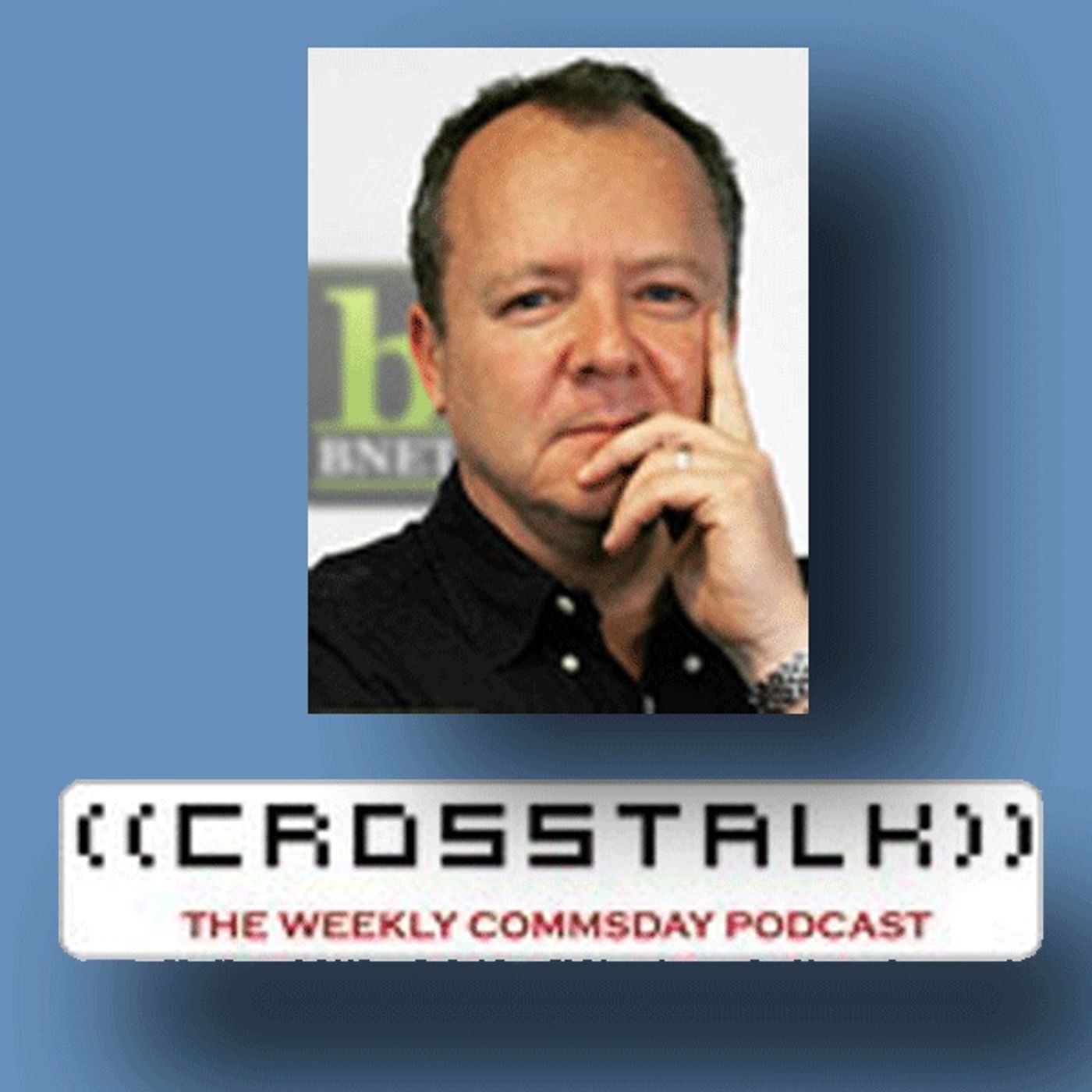
18 Apr '13 - Can Turnbull do a two step?
If Malcolm Turnbull sees fibre as the ultimate solution he will ensure his fibre to the node network is designed for what follows it.We know deploying fibre to every home is complicated. The ACCC’s involvement in copper pull- throughs is an example of that. Commissioner Ed Willet helps explain in this week’s podcast just how many parties are involved when the only way to connect a home is to hook the fibre to the copper wire and pull it through the duct. It’s one example of why delivering such a vast network is a massive undertaking.From that point of view the interim step of building a fibre to the node network might make sense. After all, it’s good enough for the British. Andrew Ferguson, editor of thinkbroadband.co.uk, says there’s only a small proportion of evangelists demanding a full fibre solution.For those who want fibre all the way they can choose fibre-on-demand – something included in the coalition’s proposal here. But the UK is only at trial stage and the cost is prohibitively expensive. The problem, says Benoit Felton from Diffraction analysis, is that individual households will be paying a one-off truckroll and fibre circuit that would be shared with a full fibre deployment.Even if whole communities bandy together it’ll still cost more if the initial fibre to the node network hasn’t been designed as a stepping stone to a full fibre solution. If Turnbull sees fibre as the future he could at least be considering paying a little extra for a design that will save costs down the track.Tell us what you think. After you’ve listen to the podcast call the CrossTalk feedback line on 02 9304 5198Subscribe to CrossTalk on iTunes: https://itunes.apple.com/au/podcast/cross-talk/id597713172?mt=2RSS feed: phildobbie.com/crosstalk.xml
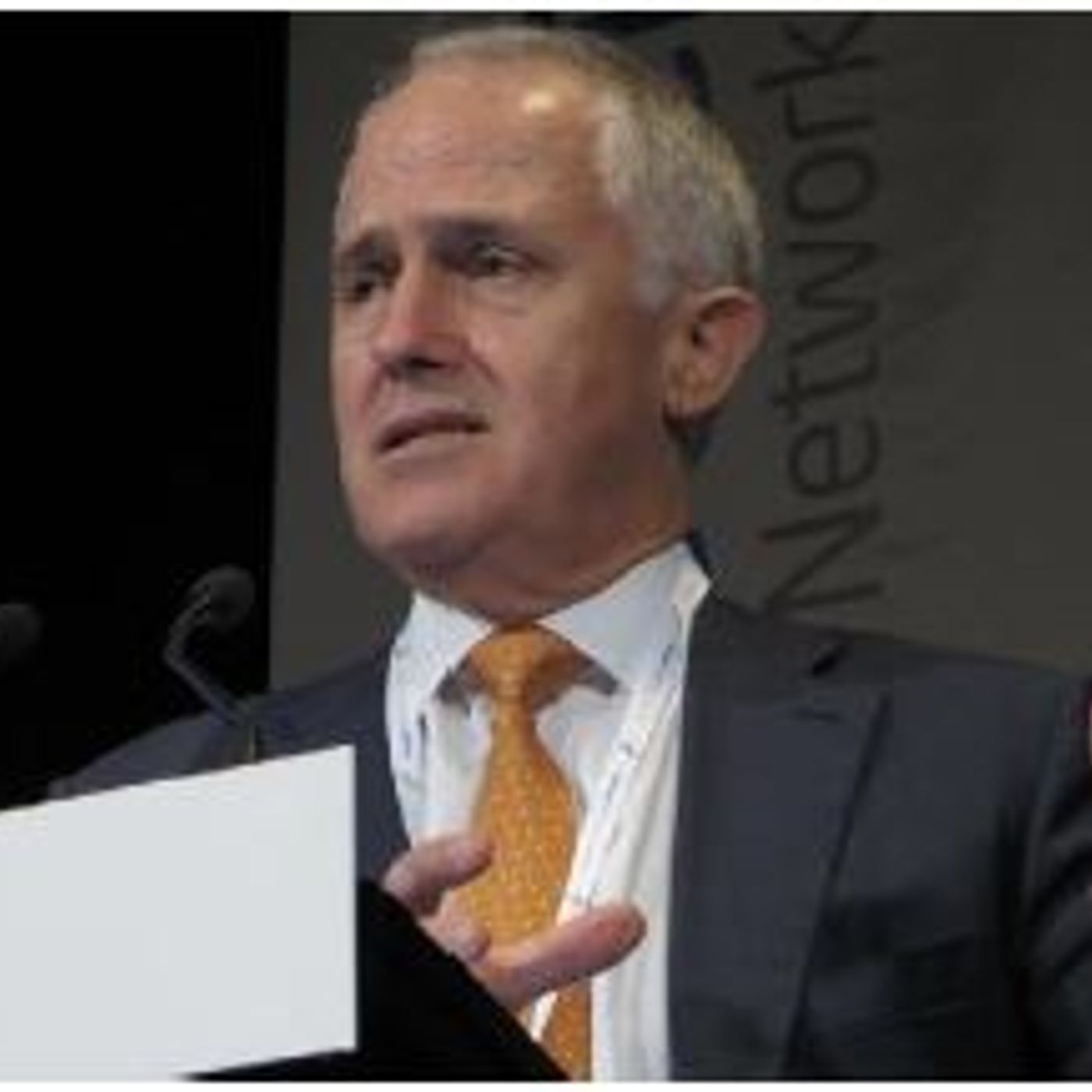
12 Apr '13 - Turnbull’s Broadband Plan Examined
Just because Malcolm Turnbull said some nice things about this podcast to the gathered throng at the Communications Day summit, doesn’t mean we shouldn’t be critical of his broadband plan.As Internode founder Simon Hackett suggests in the program, it’s merit is based on how quickly we discover we need speeds faster than 50 Mbps. He believes we will move to fibre at some point, the question is how quickly will the demand come. If it takes a long time, then Turnbull’s interim step might be a sensible one. You can read more about this at Simon's website http://simonhackett.comIt seems the appetite is there for faster broadband. You’ll hear John Simon, head of product and sales at NBN Co, explaining how, although the rollout of fibre is behind schedule, take-up rates and demand for higher speed plans are above NBNCo’s forecasts. So, there’s latent demand. The question is, will the Coalition’s approach be enough to satisfy that demand?We also look at the reintroduction of infrastructure competition. I ask David Epstein, vice president, corporate and regulatory affairs at Optus, whether he’s concerned this will mean an end to the structural separation of Telstra.We’d love to hear your thoughts too. Leave a message on the CrossTalk feedback line: 02 9304 5198Subscribe to CrossTalk on iTunes: https://itunes.apple.com/au/podcast/cross-talk/id597713172?mt=2RSS feed: phildobbie.com/crosstalk.xml

4 Apr '13 - Is the digital dividend priced too high?
At the end of this month the spectrum made available by the switch off of analogue TVs goes up for sale. But has the government set too high a price?Senator Stephen Conroy has determined the reserve price for the 700 MHz spectrum should be $1.36 per MHz pop. It’s more than double the rate paid for the 800 MHz spectrum in the UK recently, with many other European auctions falling even further below our local target.Still, a high price makes some sense. After all, there are only two bidders – Telstra and Optus. With each set a maximum allocation, basically they’ll each get as much as they want, provided they pay the reserve. If some of the spectrum goes unsold is it a bad thing? It just means the carriers bid again further down the track, when they meet it.In this week’s CommsDay CrossTalk podcast Phil Dobbie talks about the auction with independent telecoms analysts Chris Coughlan and Ovum’s David Kennedy. We’ll also celebrate the 40th anniversary of the mobile phone. It was April 3rd 1973 when Martin Cooper, an engineer at Motorola, made the first call on a handheld device intended for regular users.We’d love to hear your thoughts too. Leave a message on the CrossTalk feedback line: 02 9304 5198Subscribe to CrossTalk on iTunes: https://itunes.apple.com/au/podcast/cross-talk/id597713172?mt=2RSS feed: phildobbie.com/crosstalk.xml
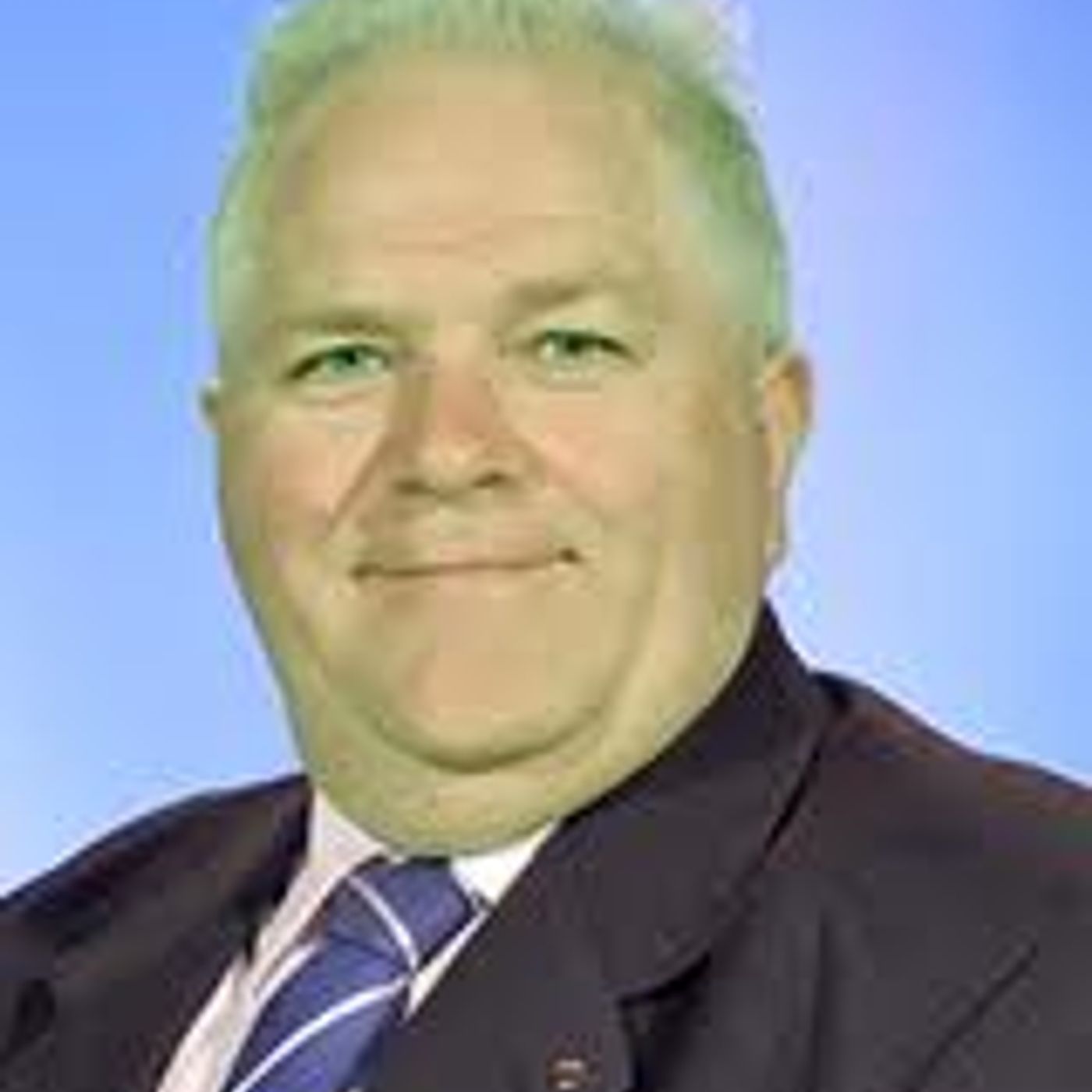
27 March '13 - NBN Delays: Process or Technology?
This week, with the Coalition’s broadband policy just around the corner, NBNCo’s rollout seems fraught with delays.Mind you, it wouldn’t be the first government sponsored initiative to run behind schedule. Yet, in this week’s CrossTalk podcast, Liberal MP Paul Fletcher asks whether the NBNCo management team really understands its own business.That would seem to imply he thinks the whole project is being mismanaged. Would that go away if there was a change in government?Well, the coalition will be pushing for fibre to the node, a technically inferior alternative that does, at least, negate the need to connect-up the customer’s premises. But is that the real issue? If Fletcher thinks NBNCo is mismanaged, does it matter what technology they deploy? The issue of governance remains.We’ll also hear from Mark Gregory, senior engineering lecturer at RMIT University. He is concerned that, under the current approach, the NBN could be delayed as much as 10 years and costs could double – but he’s not a fan of the coalition’s alternative.His preference is that we maintain the fibre to the premises approach, but we resolve the operational issues that are slowing the progress. In fact, he doesn’t understand why the coalition wouldn’t promise to deliver on the NBN’s technology but manage it in a more expedient manner. Surely that would be a vote winner all round?We’d love to hear your thoughts too. Leave a message on the CrossTalk feedback line: 02 9304 5198Subscribe to CrossTalk on iTunes: https://itunes.apple.com/au/podcast/cross-talk/id597713172?mt=2
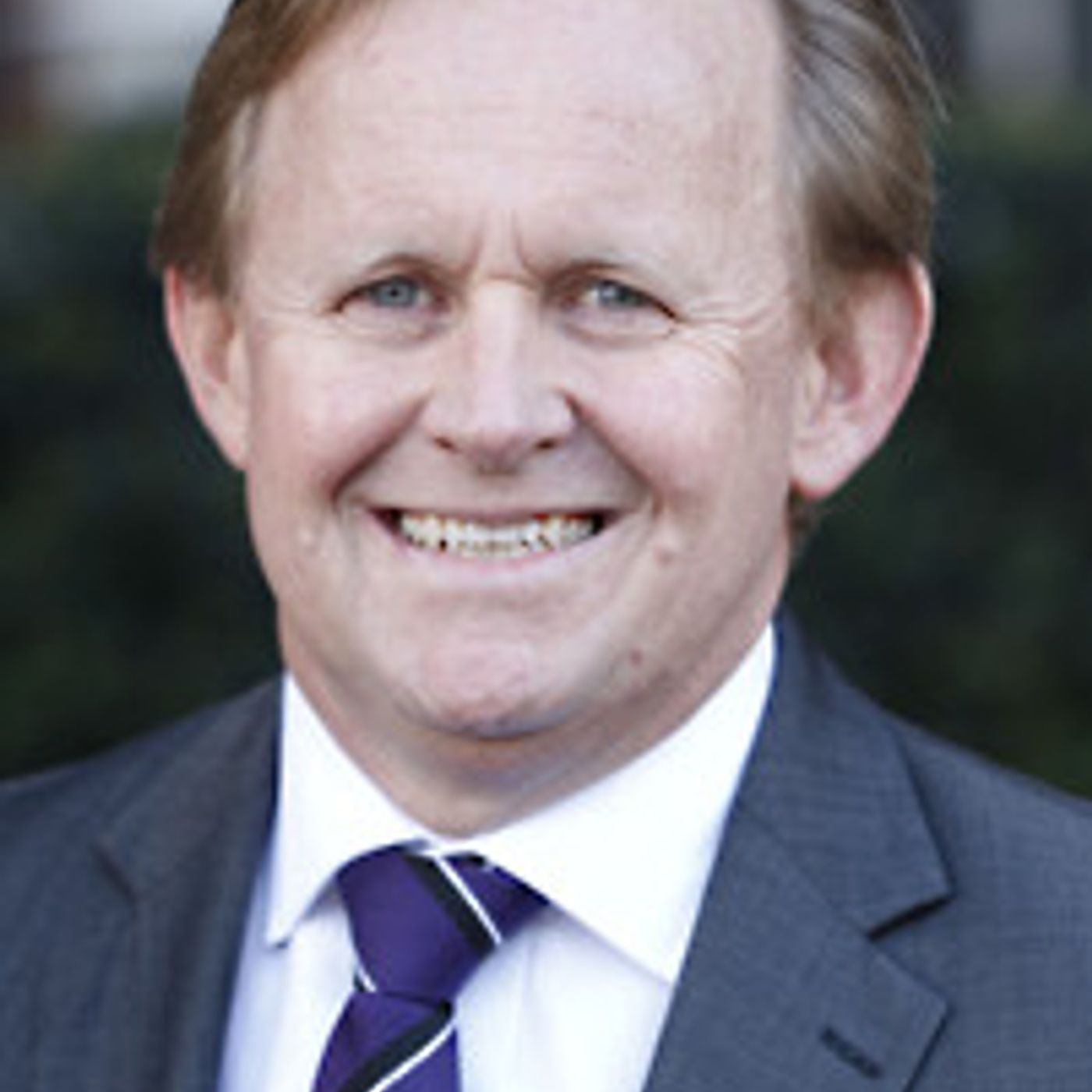
21 March '13 - Dodo's sale is all about scale
This week M2 telecommunications announced that they were spending $203.9m to buy Dodo, as well as bidding $44.1m for Eftel. It comes hot on the heels of their acquisition of iPrimus and solidifies their position as a significant consumer retail player.Of course, Dodo got where it is today by selling on price. They undercut competitors on broadband, mobile and home phones, before recently diversifying into power, gas and insurance. This last year has seen a significant increase in their revenue but, as a reseller reliant on the infrastructure of others, their EBIT margin is very slim.It’s another example of how companies are jostling for scale ahead of the NBN when everybody will be relying on the same government owned network with the same cost base.On this week’s CrossTalk Phil Dobbie asks if, in this race for scale, price is all that matters these days. You’ll hear from:-Geoff Horth, CEO of M2 Communications;-David Kennedy, Research Director & Principal Analyst, Ovum; and-Ian Martin, Senior Equity Analyst, Telecommunications at CIMB Securities.What are your thoughts. Is this a smart move or does it create too complex a stable of products? Call the CrossTalk feedback line on 02 9304 5198 to leave a message.Subscribe to CrossTalk on iTunes: https://itunes.apple.com/au/podcast/cross-talk/id597713172?mt=2

14 March '13 - Facebook: the telco of tomorrow?
Smart phone subsidies hit telco bottom lines today. But what if Facebook decides to become a service provider in its own right? What chance do retail phone companies have then?LG, Blackberry and HTC all have new smartphones out, ahead of the launch of the new Samsung Galaxy S4. The mobile carriers, it seems, are falling over themselves to tie up deals and offer the best price to customers. Often the devices come with hefty subsidies from the service provider. Take Vodafone’s offer of a free iPhone4 on a $30 plan, for example. Can they really make money on such a high cost of acquisition on a low ARPU customer?So, are the phone companies getting pushed around by the device manufacturers? It’s clear they are. People are more interested in the latest gadgets than the humdrum facets of the network they use, so telcos are having to cut costs to compete.The situation could get worse. What happens when Facebook starts to offer voice calls globally? Worse still, what if it becomes a service provider in its own right? They could subsidise the cost of access with the extra opportunities from advertising.In such an environment do mobile carriers really have a future in the retail space, or could they be forced to become wholesalers only, servicing the big international brands who control the relationship with the customer?This week Phil Dobbie talks to:- Mark Spoonauer, editor in chief for Laptop Magazine- Foad Fadaghi, senior analyst at Telsyte- Paul Budde, managing director of Paul Budde Communication- John Strand, CEO of Strand ConsultWe’d love to hear your thoughts too. Leave a message on the CrossTalk feedback line: 02 9304 5198Subscribe to CrossTalk on iTunes: itunes.apple.com/au/podcast/cross-talk/id597713172RSS feed: http://phildobbie.com/crosstalk.xml

7 March '13 - NBNCo's MDU Dilemma
Who’d have thought it? Connecting fibre into every apartment is proving to be somewhat problematic. First there’s getting the approval of owners, renters and body corporates. Then there’s the issue of how to physically connect in a way that’s cost effective and aesthetically acceptable. It often fell in the too hard basket when Telstra and Optus were rolling out their HFC networks. But NBNCo has to do it. In this week’s CrossTalk Field Manager Troy Mercieca talks through the issues with wiring up an apartment complex. Industry commentator Kevin Morgan points out how in most markets the solution is VDSL – fibre to the apartment, then using the existing copper within the building. Jason Ashton, CEO at Big Air suggests that might, in many cases, guarantee faster speeds than fibre.Whatever the solution, it’s clear that NBNCo has a lot on its plate. It stems from having a national government sponsored organisation charged with resolving a myriad of local issues, of which the MDU problem is one. Project manager Andrew Franz suggests an alternative approach to a broadband rollout – one which involves local companies, with knowledge of local issues, pitching to manage the local build. It might just have a point.Have a listen to the views in this week’s podcast and add your opinion by calling the CrossTalk feedback line on 02 9304 5198.

28 Feb '13 -A Collaborative Cost Benefit Analysis
Malcolm Turnbull wants one. Now Mike Quigley wants one too, if only to put some numbers behind the debate around alternative technology solutions. But when a cost benefit analysis is provided, doesn’t it always say what the sponsor wants to hear?For that reason isn’t Mike Quigley right when he suggests that the Communications Alliance should be the group doing the numbers work? Well, somebody should. Otherwise we’ll end up with another report driven by an agenda.This week on CrossTalk we suggest that we should develop a more collaborative approach to the development of a cost benefit analysis. In other words, provide a platform where anyone in the industry can suggest inputs for the model – the data and assumptions that will influence the result. Why leave it in the hands of economists who don’t have the full range of technical experience? With full visibility of the inputs multiple economists could then build models to give us a range of possible answers. Each would be open to full and rigorous debate.It’s an idea that gets the nod from the three economists I spoke to for this week’s program:- Henry Ergas, a professor of infrastructure economics at the University of Wollongong, who built a cost benefit analysis for the NBN back in 2009.- Steve Keen, author of Debunking Economics, who is currently working on a computer program to develop a more sophisticated model of the economy.- Nicholas Gruen, CEO of Lateral Economics and former chair of the Government 2.0 Taskforce.Listen to the program and tell us what you think. Leave a message on our feedback line – 02 9304 5198. Should the industry step in and produce a collaborative cost benefit analysis before the politicians provide one driven by their own agenda?

14 Feb '13 - Quicker and Cheaper: Too Simple an NBN Election Promise?
How can you lose when your proposition is that you’ll offer the same thing, more or less, but spend less and deliver it that much quicker?That’s the essence of the policy the Liberal party seem set to take to the next election. Even though they say the debate has revolved too much around the technology, their “quicker and cheaper” proposition is based on a technological solution: fibre to the node rather than fibre to the premises.It’s harder to get answers to some of the more pertinent questions, such as “will the solution guarantee uniform speeds and pricing across the vast majority of the country?” In this edition of CrossTalk Independent MP Rob Oakeshott says the will of the Nationals will stop the Liberals from backtracking on Labor’s uniform pricing promise. But could we see regional Australia hit with slower speeds than metropolitan voters? Again, it would be seen by many as a retrograde step.I talk to Liberal MP Paul Fletcher about the intricacies of the Liberal NBN policy, particularly in relation to competition policy and funding models.Add your comments on the Twisted Wire feedback line: 02 9304 5198. Subscribe to CrossTalk on iTunes: itunes.apple.com/au/podcast/cross-talk/id597713172

7 Feb '13 - Security On Hold?
We heard a lot about telecoms and national security last year. So what’s happening next?Last July the government announced an inquiry into National Security Legislation. There was a discussion paper, a month for interested parties to submit a response, followed by a series of hearings by the Joint Parliamentary Committee. Since then we’ve heard very little. Does this mean, with an election looming, the whole thing has fallen into the too-hard basket? The Green’s communications spokesman Scott Ludlam says it isn’t buried, but he doesn’t expect much to happen before September.The most discussed element of the government’s proposal was that companies should retain customer usage data for two years. But what of the stipulation “to provide Government with information on significant business and procurement decisions and network designs”. Steve Dalby, iiNet’s Chief Regulatory Officer, describes this as a “very vague statement” which his company is very uncomfortable with.But is the industry being too precious? National security is clearly an important issue and one that telecommunications companies need to be more involved with. That’s certainly the view of former RAAF intelligence and security specialist Brett Biddington: “Ultimately these people are making their profits by selling services to the Australian people. It seems to me to be a pretty stupid company that, at the same time as it’s doing that, is doing it in such a way that imperils the very market that it wishes to serve and take profit from.”This week on CrossTalk we ask whether the telecommunications sector needs to be more engaged in discussions on national security and, if so, who will take the lead?Want to add a comment - add it on SoundCloud or call the CrossTalk feedback line and leave a message: 02 9304 5198Subscribe to CrossTalk on iTunes: itunes.apple.com/au/podcast/cross-talk/id597713172

31 Jan '13 - Fire, Flood and Phones
2013 has got off to one hell of a start, with major fires and floods across eastern Australia. This week on CrossTalk we look at how the telecommunications industry coped - and helped - with these significant weather events.Grant Nicholson, Director Network Assurance Operations at Telstra talks about how his Major Incident Management team swings into action when disaster strikes.Gary Starr, Managing Director ANZ for Motorola Solutions, talks about how the networks used by emergency services are maintained and how more could be done if more dedicated bandwidth was available.We also look ahead to the NBN - how will it withstand what mother nature can chuck at it. Gary McClaren, Chief Technology Officer at NBNCo says fibre optic has some natural advantages.Want to add a comment - add it on SoundCloud or call the CrossTalk feedback line and leave a message: 02 9304 5198Subscribe to CrossTalk on iTunes: https://itunes.apple.com/au/podcast/cross-talk/id597713172

24 Jan '13 - New Zealand's Laissez-Faire Approach to Broadband
Australia’s NBN demands no fixed line competition but New Zealand is openly embracing it.In this first episode of CrossTalk, Phil Dobbie compares the two approaches, helped by Rohan MacMahon, Strategy Director at Crown Fibre Holdings and economist Arron Schiff from consulting firm Covec. Dr Stephen Gale, the telecommunications commissioner at the Commerce Commission, talks through some of the regulatory issues.As you’ll hear, the biggest difference relates to copper. Australia is turning it off, New Zealand will keep it going for some time to come. In parts of the country where Chorus hasn’t got the gig to roll out fibre that could create some interesting – and potentially destructive – competitive behaviour.